Join us for the launch of our final exhibition of the academic year, exploring tabletop roleplaying games (TTRPGs).
We were delighted to host experimental exhibition Weird Hope Engines, at this first opportunity to come along for a first look around. Attendees enjoyed a free welcome drink, delicious food and music.
The first exhibition of its kind, this exhibition highlights the practices of innovative designers, artists, and writers in the field of independent game design, and brings their work into dialogue with fellow-travellers in the field of critical art practice.
We dedicate the final Vitrines instalment of our 2024/25 season – Nottingham Subcultural Fashion in the 1980s – to archive material, information and clothing that documents the dynamism of the independent fashion scene of Nottingham in the 1980s.
All welcome but reserve your free ticket to avoid disappointment.
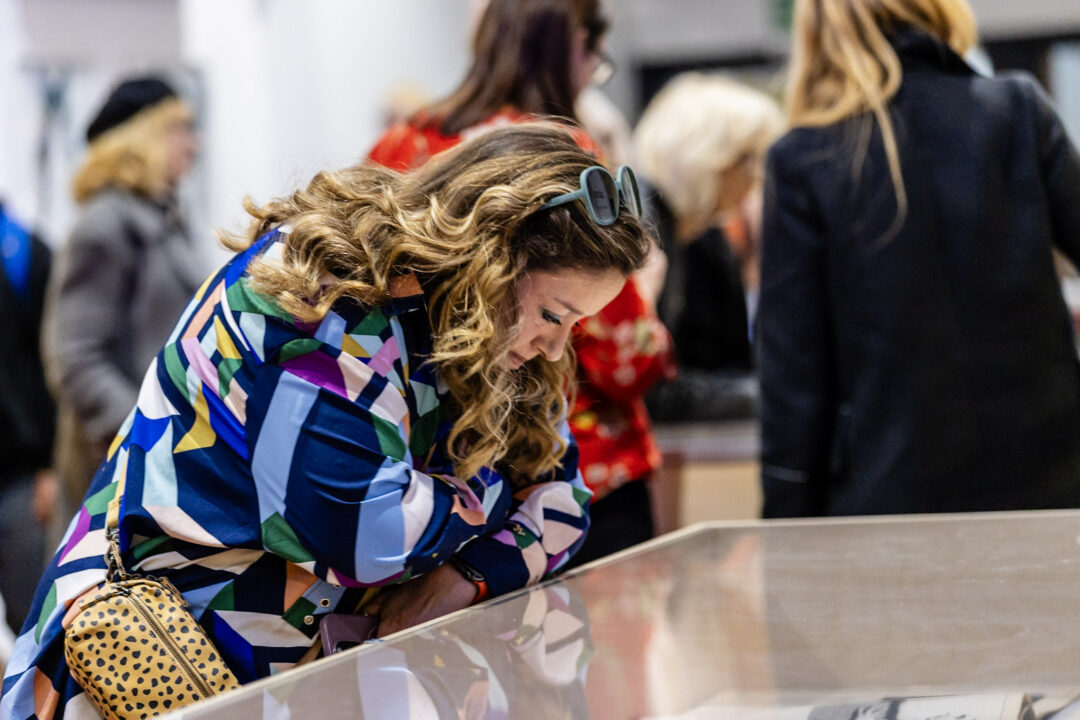
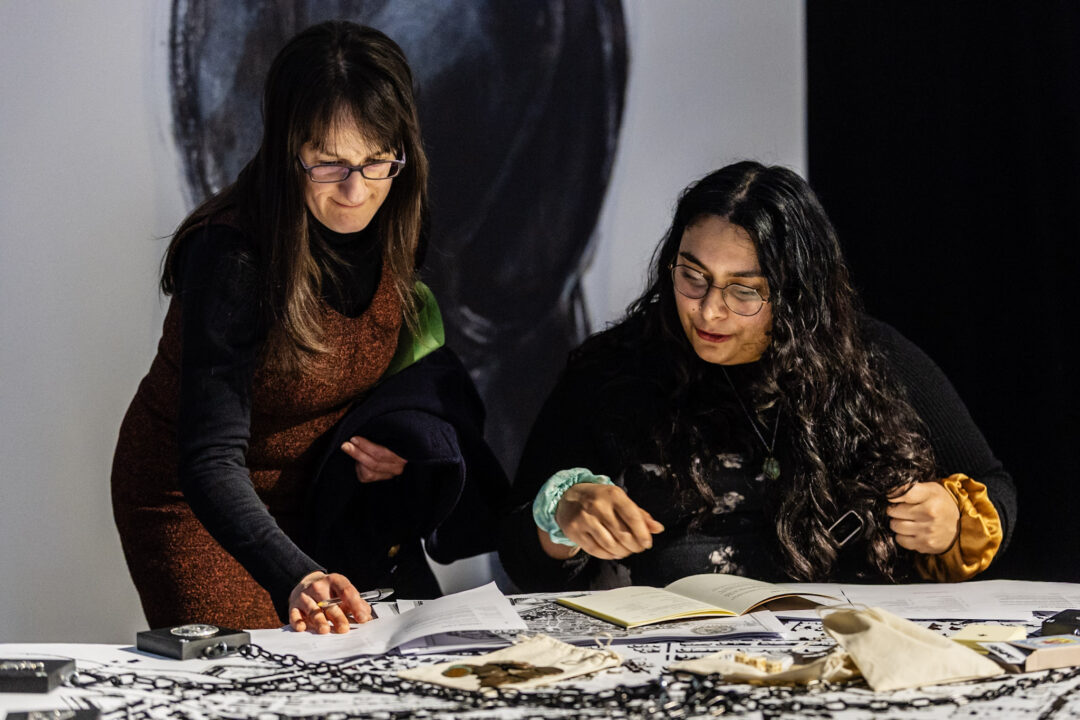
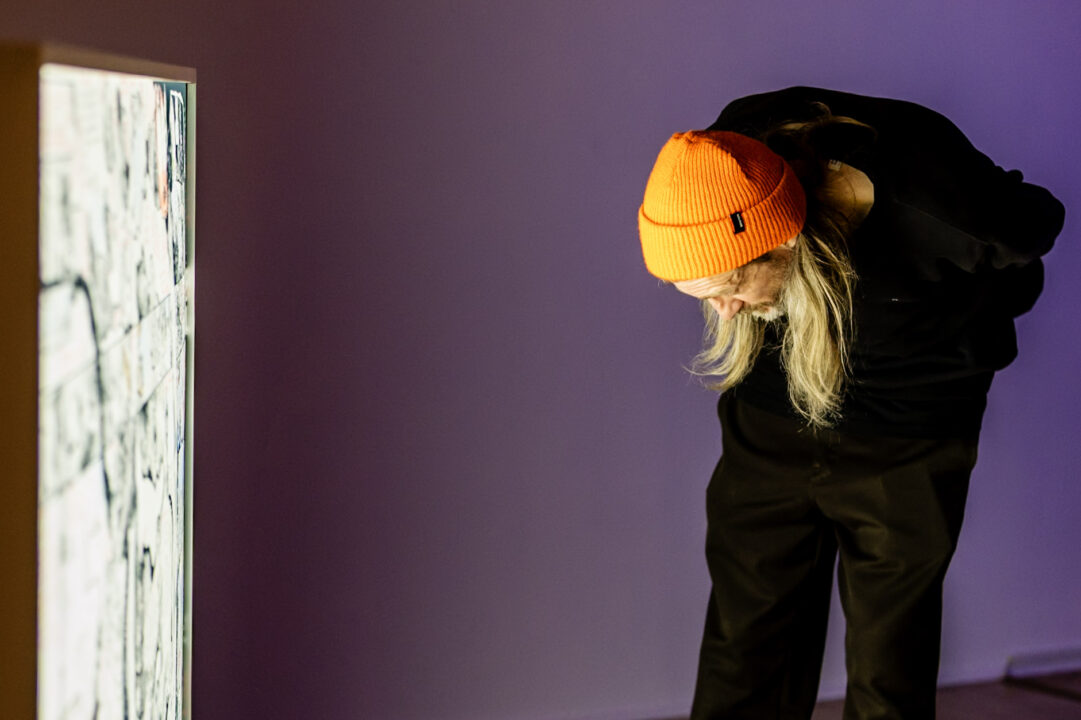
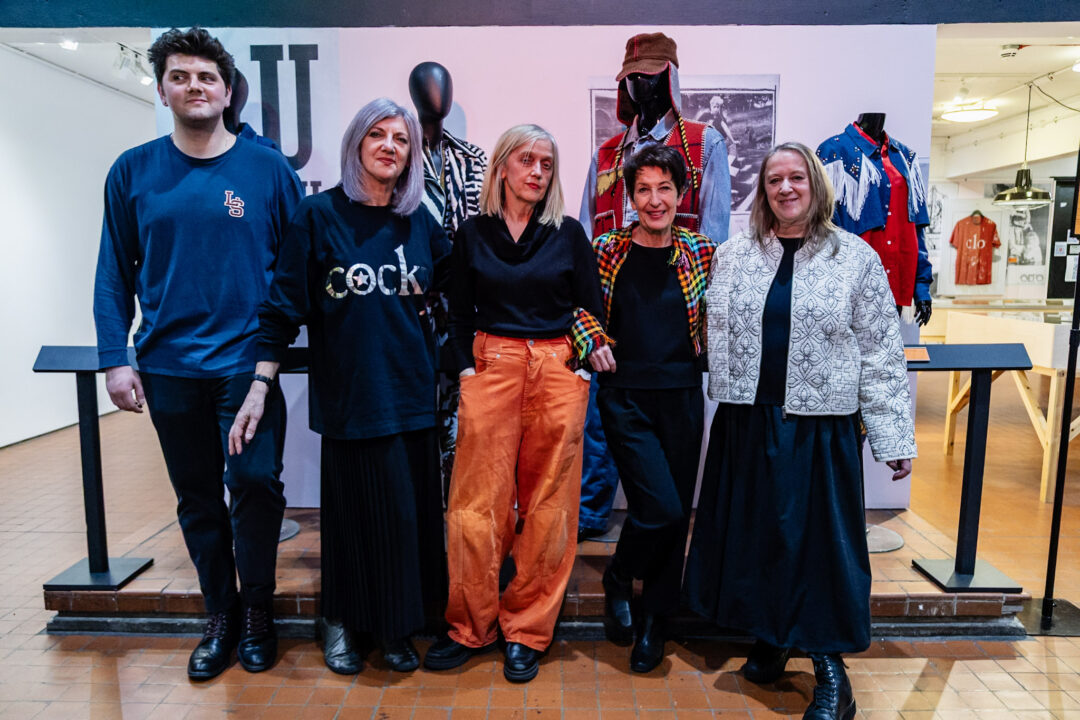
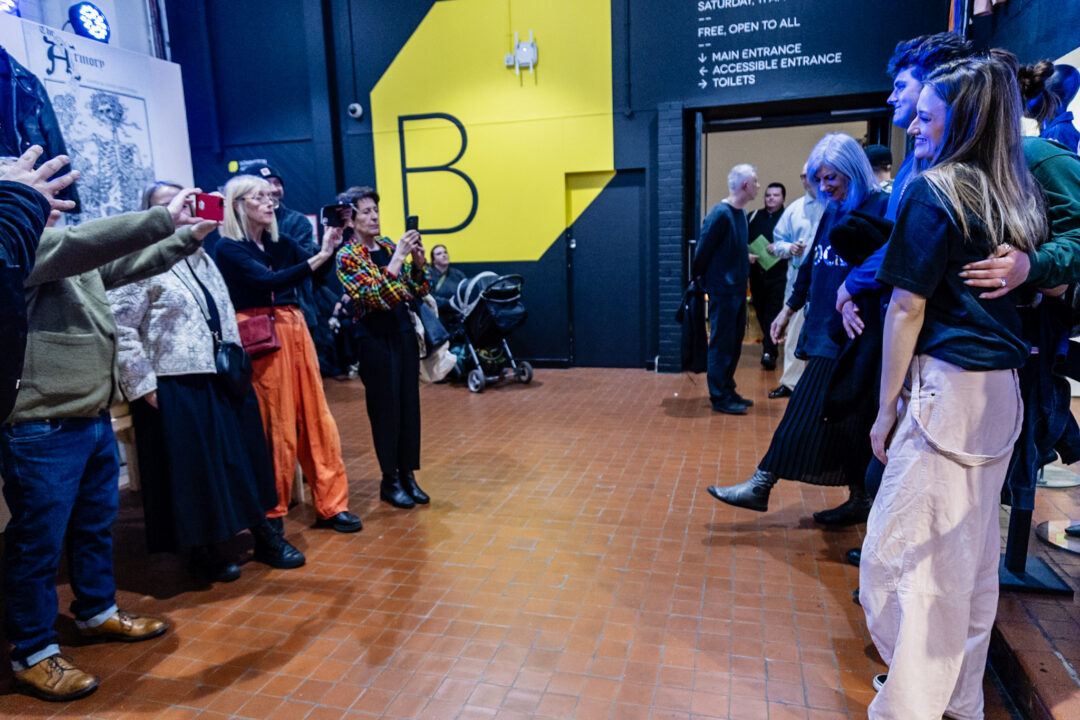
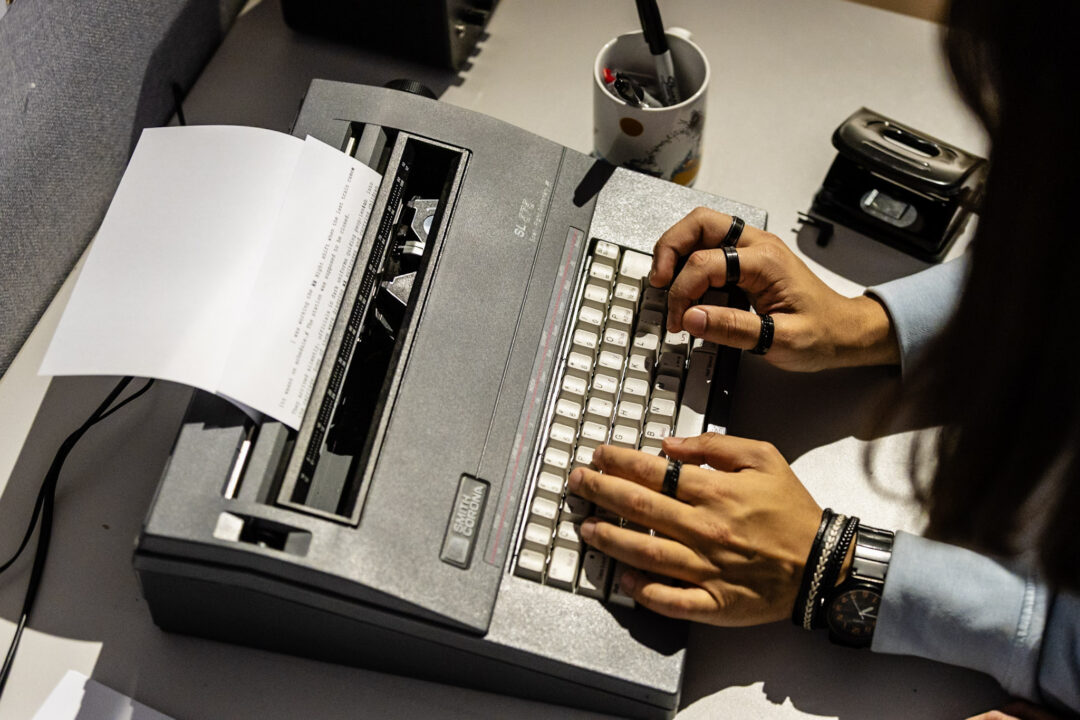
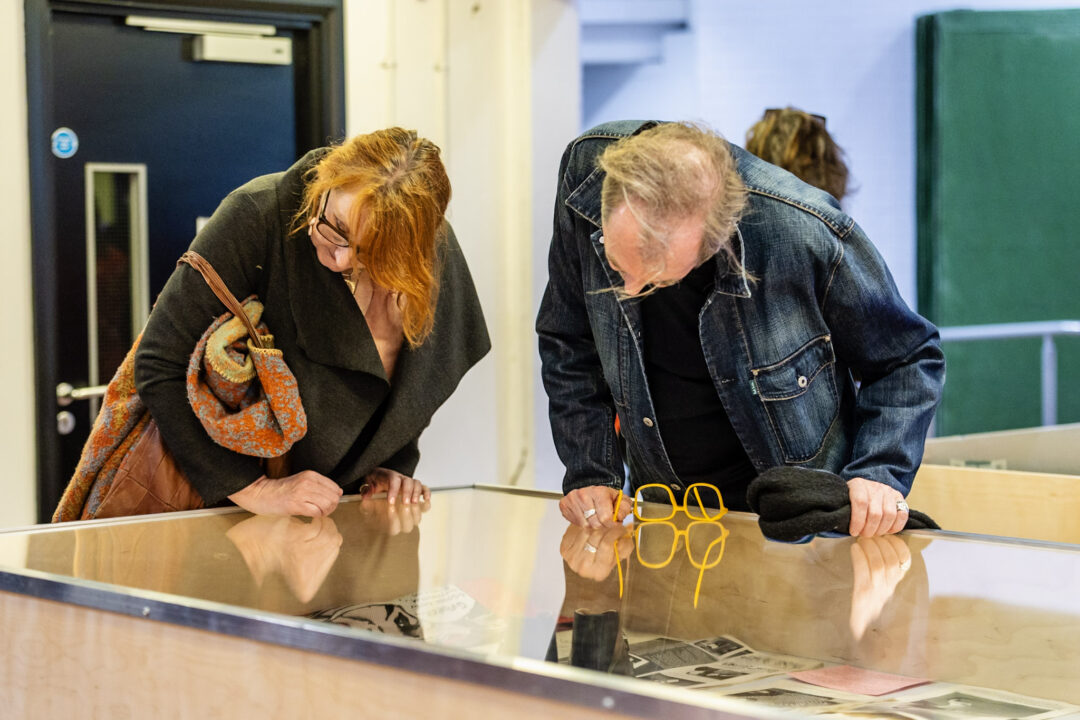
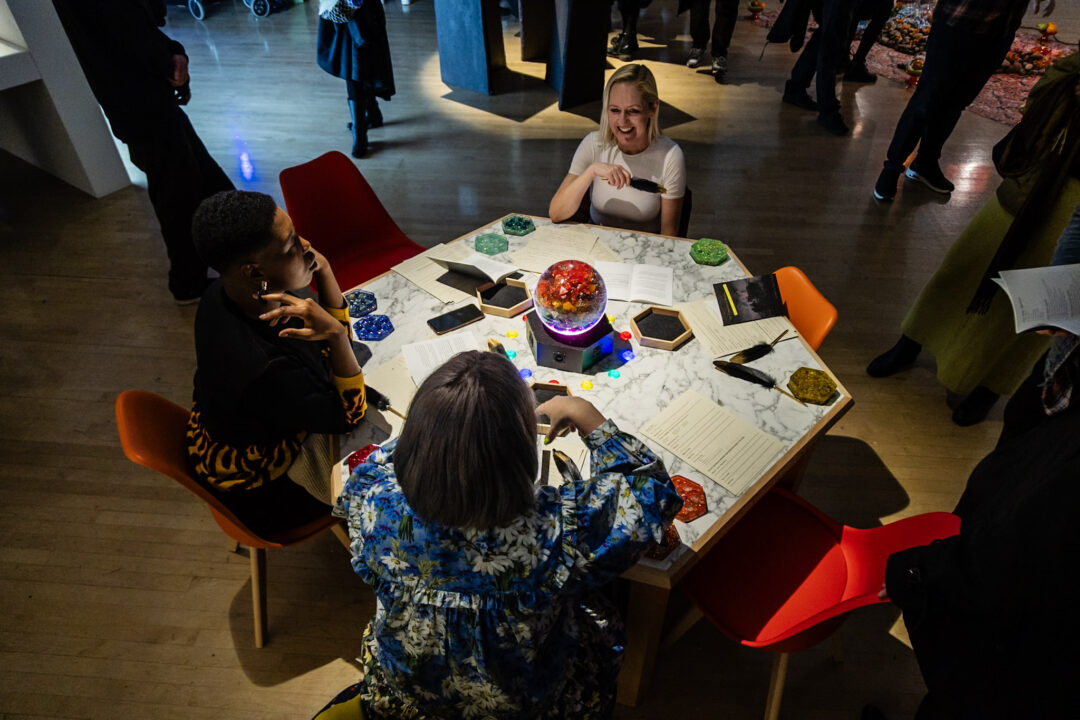
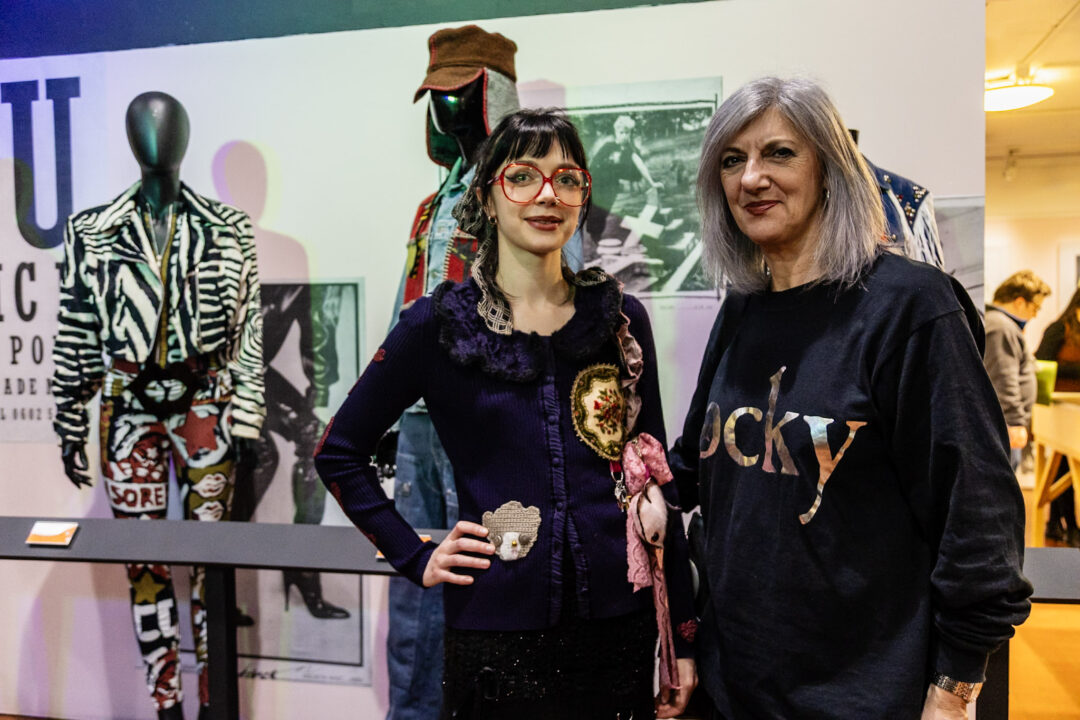
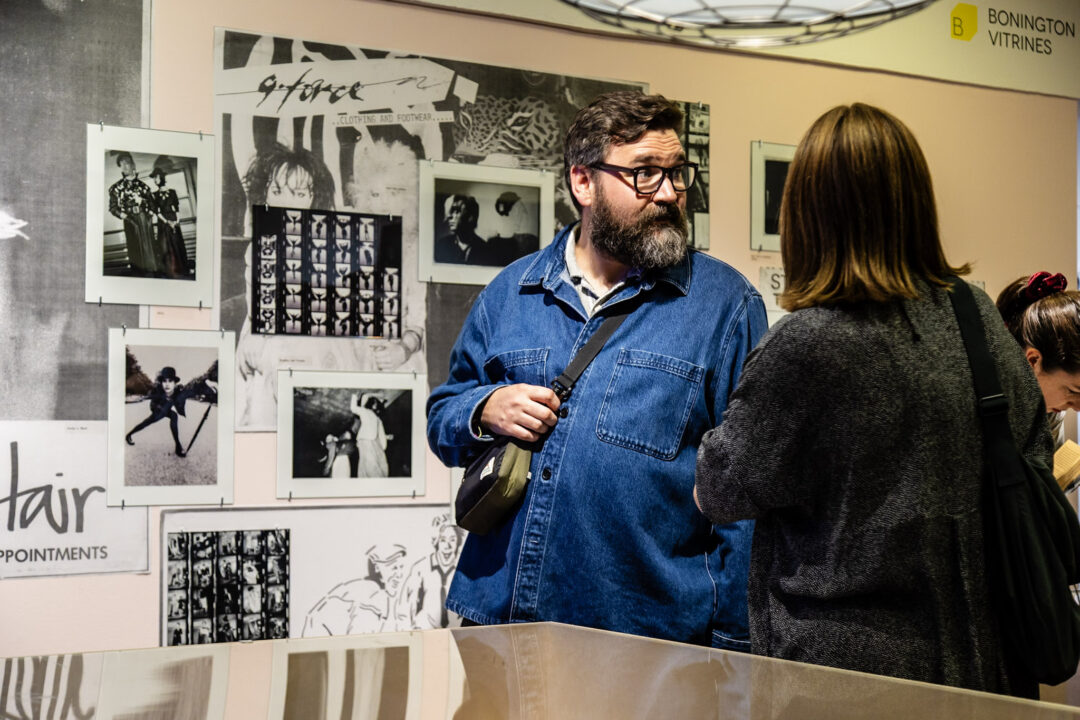
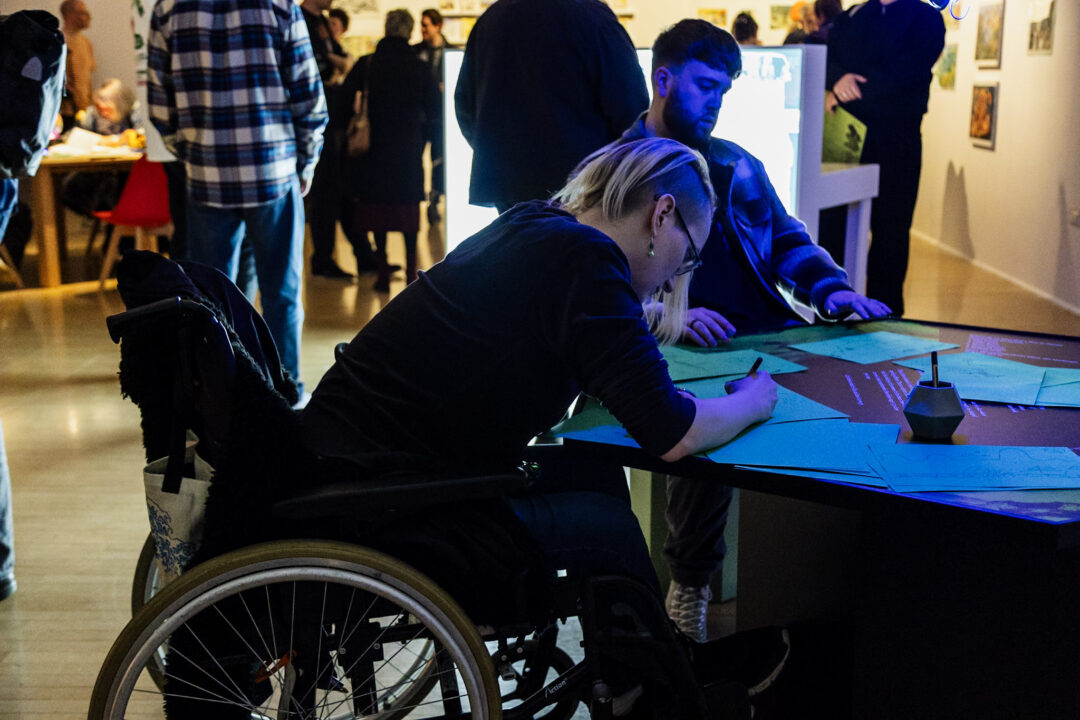
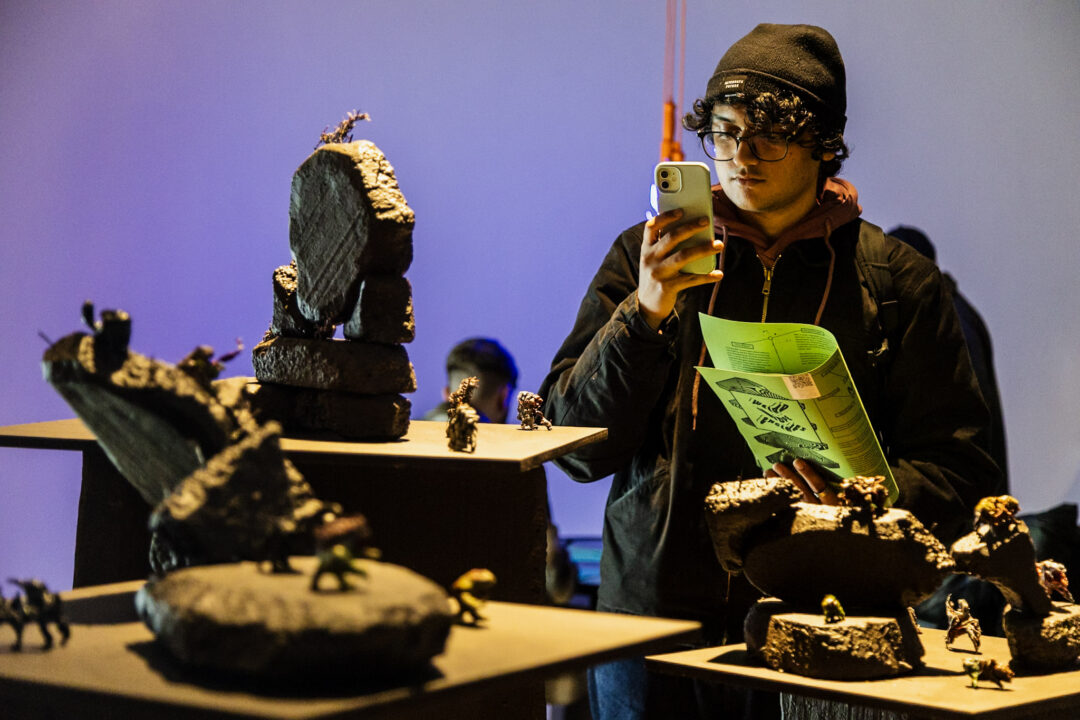
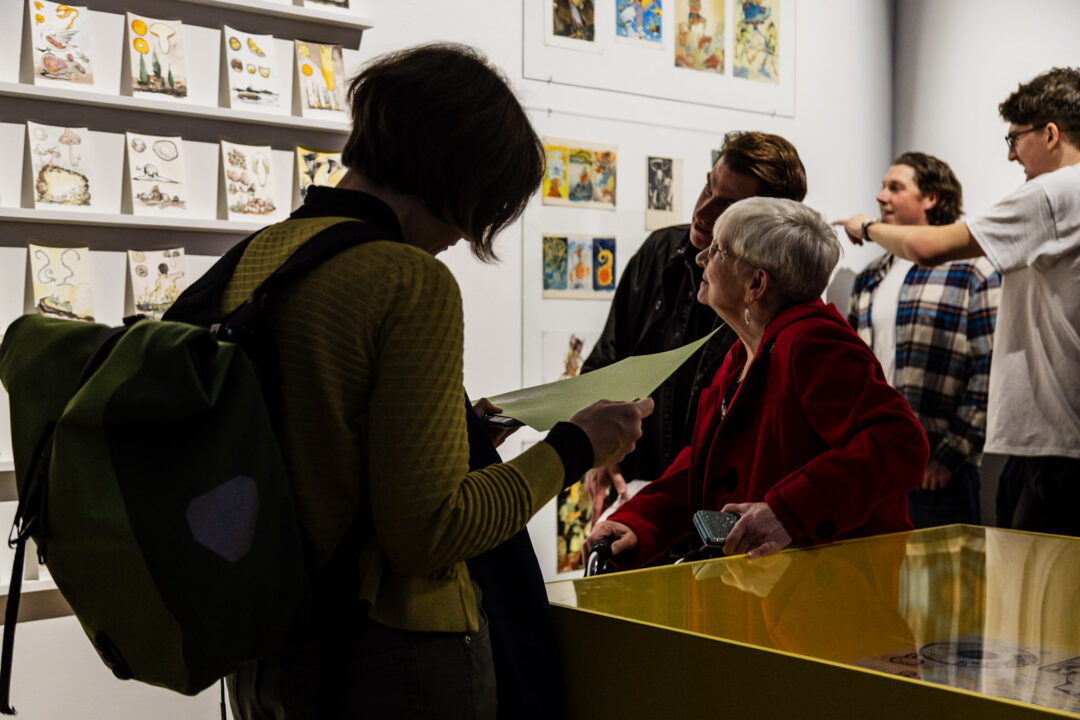
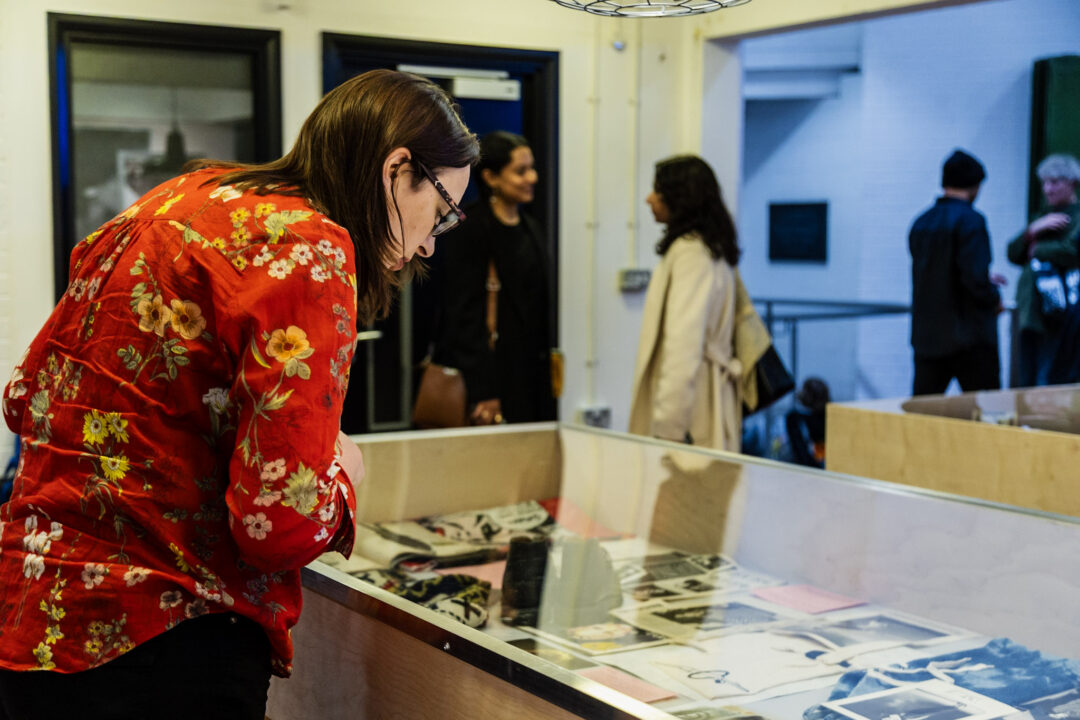
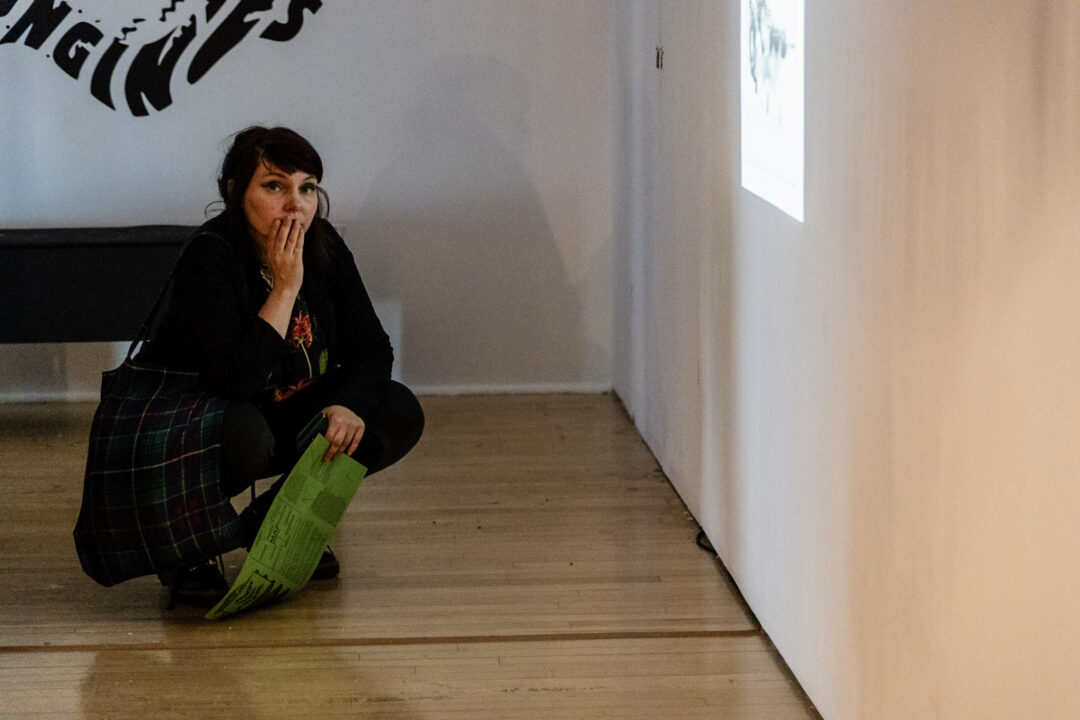
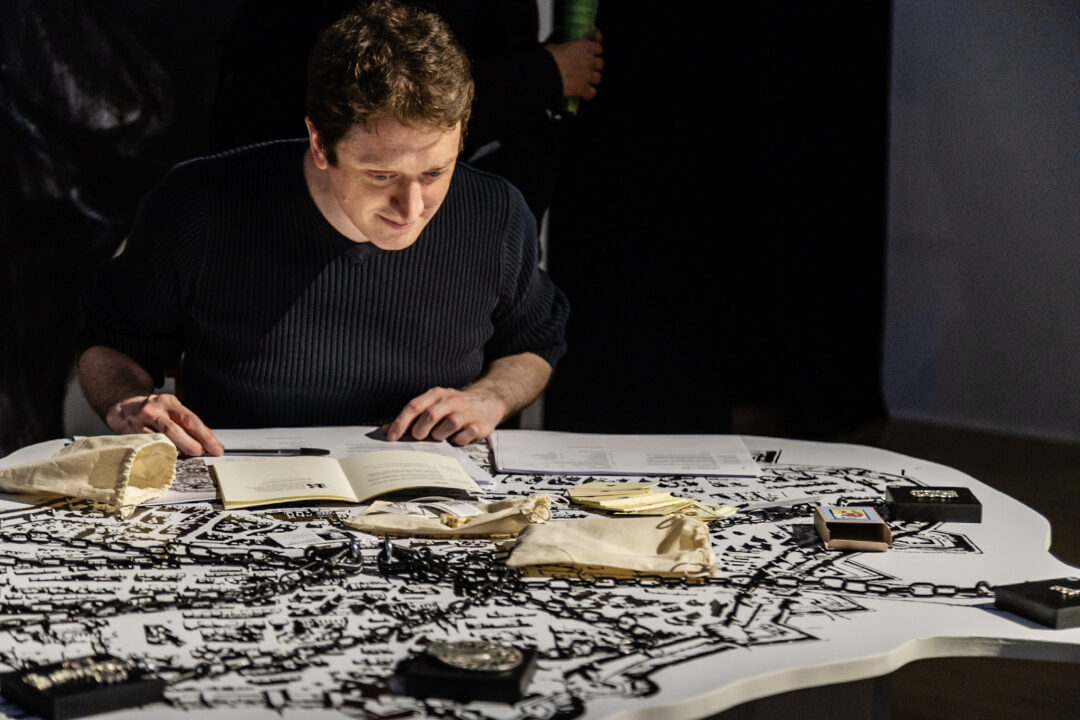
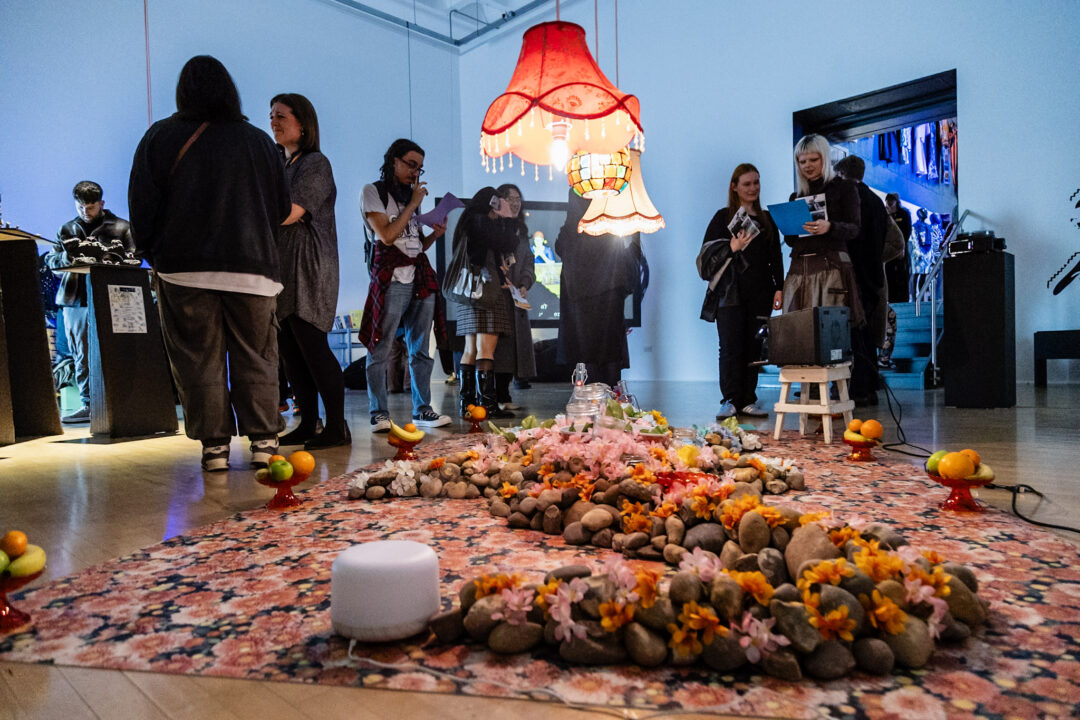
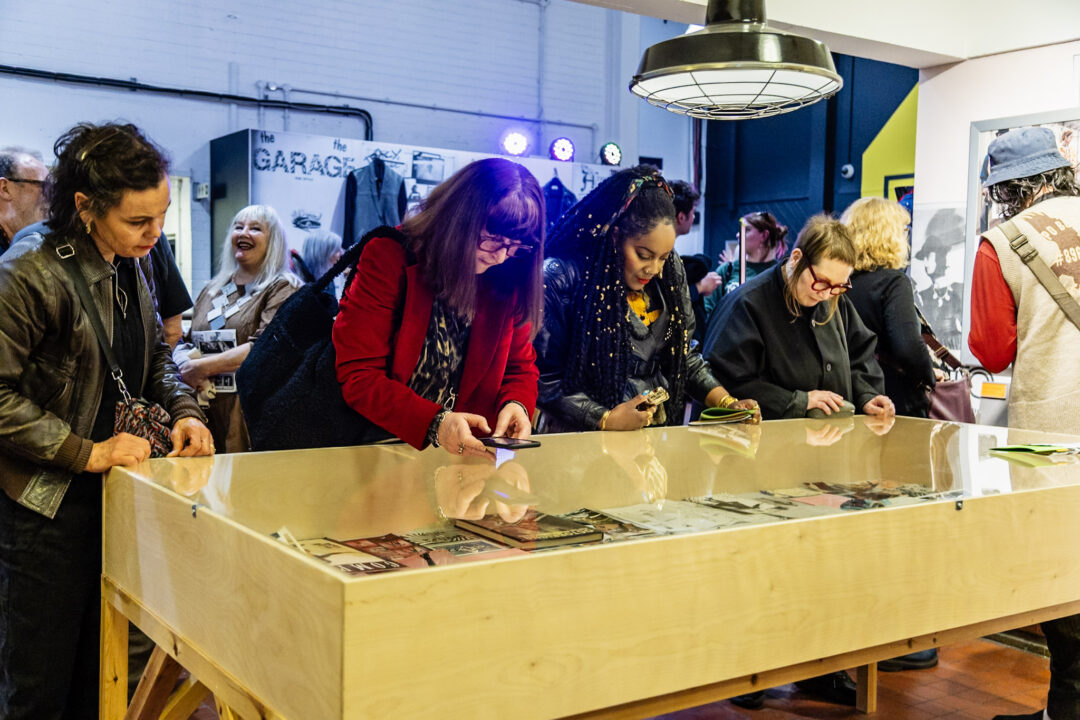
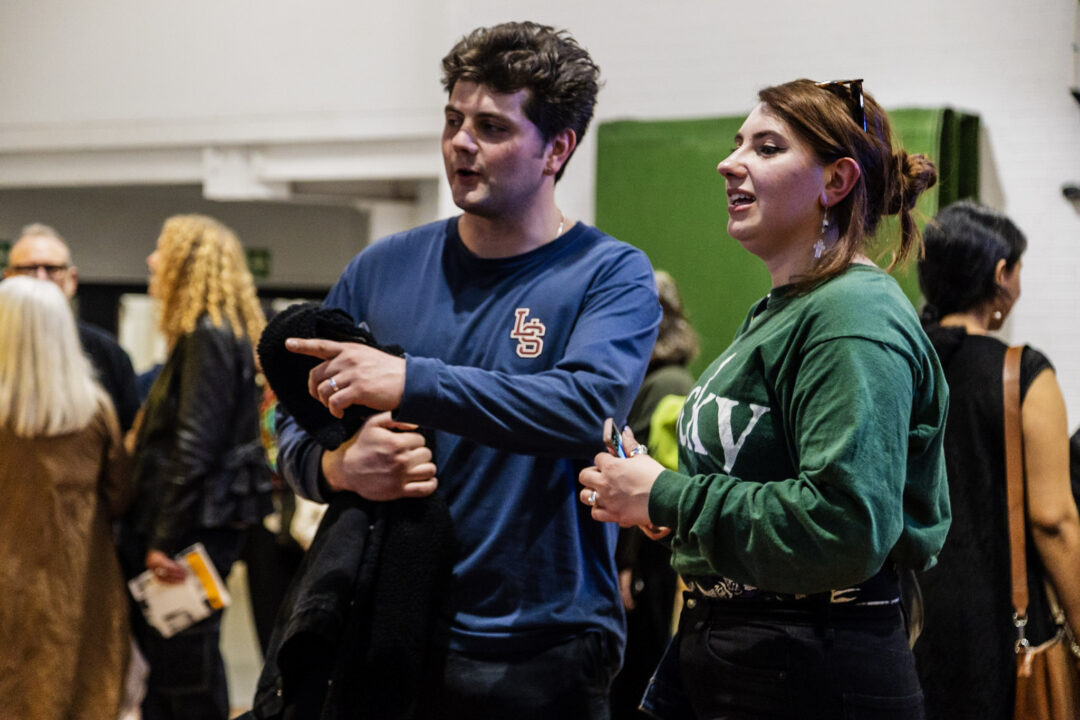
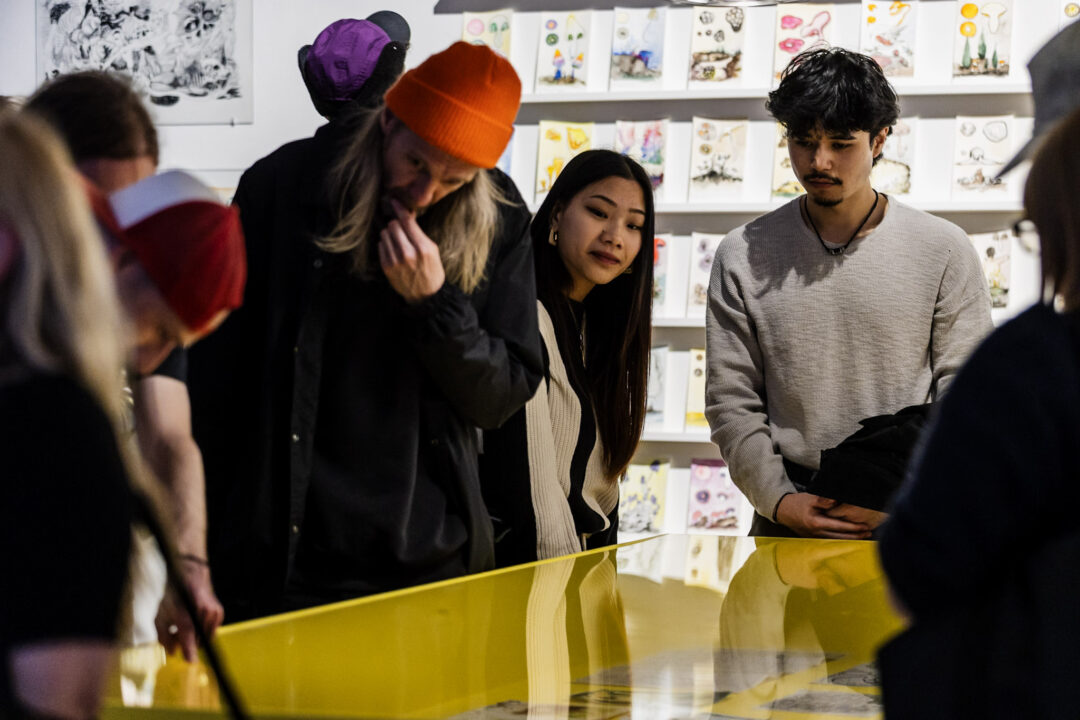
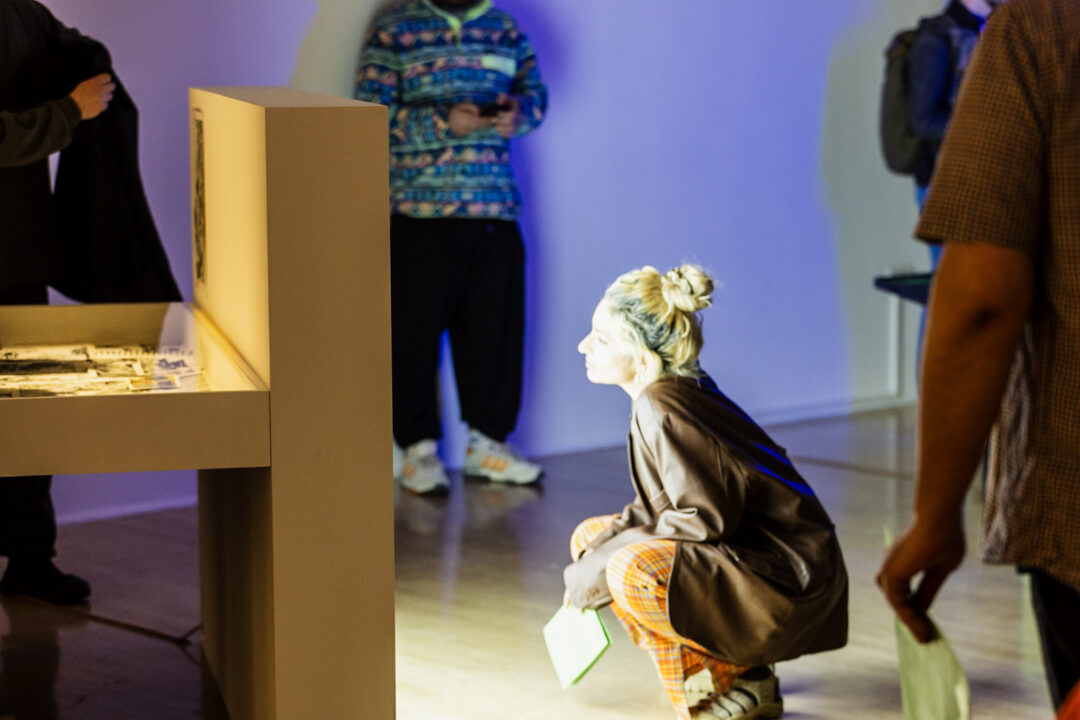
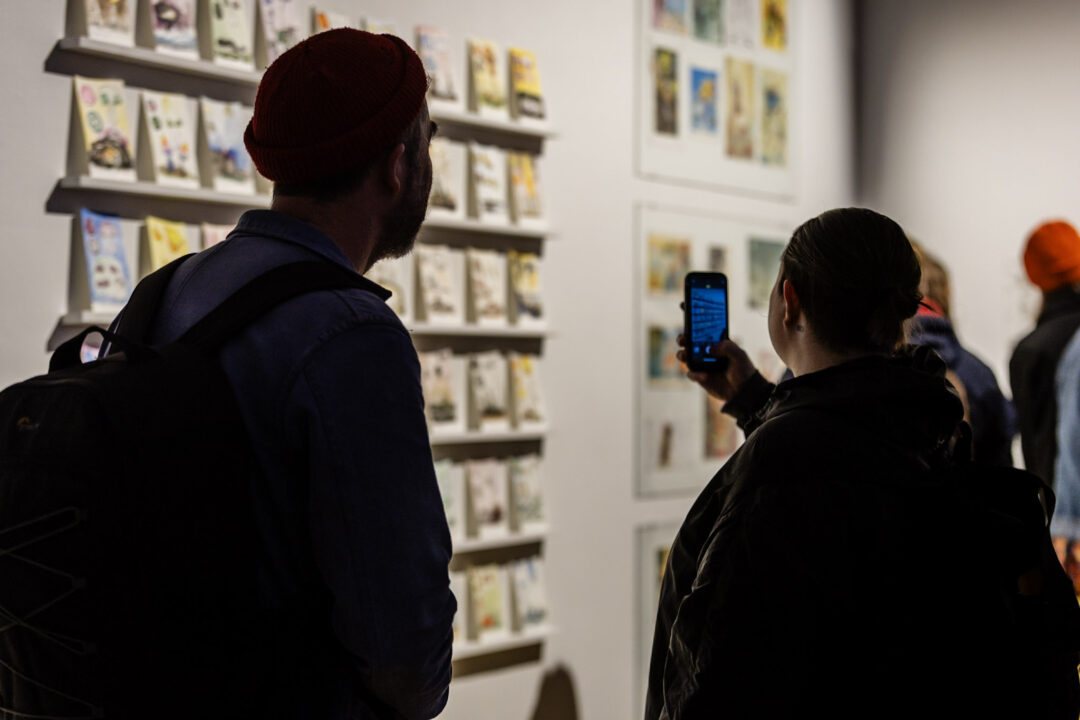
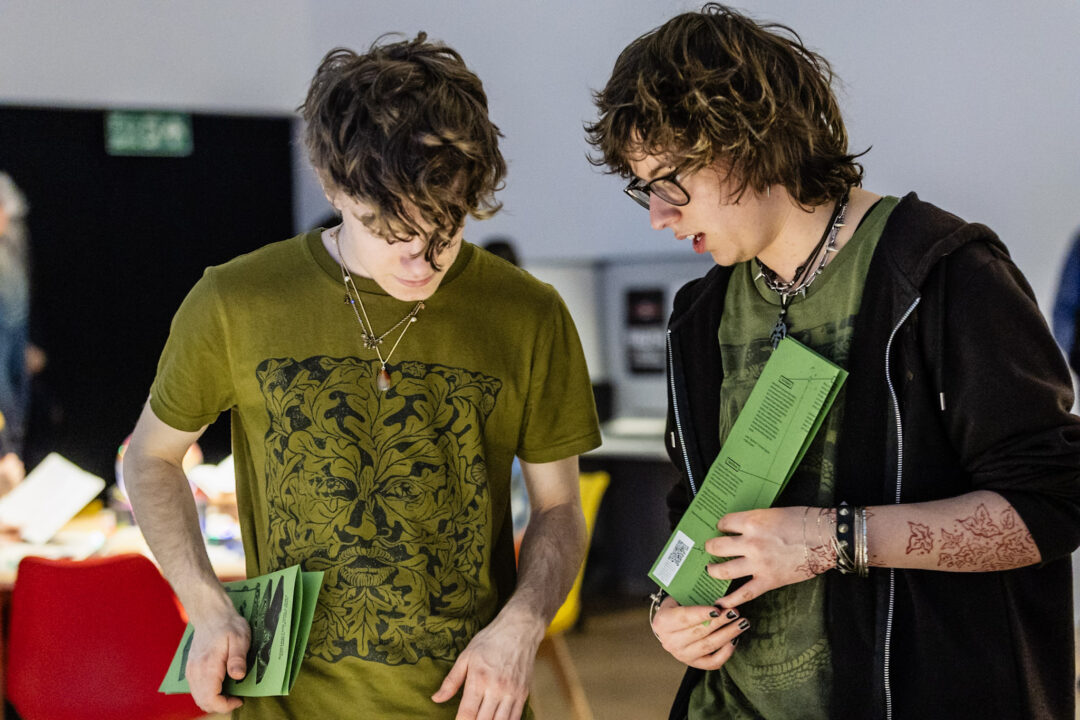
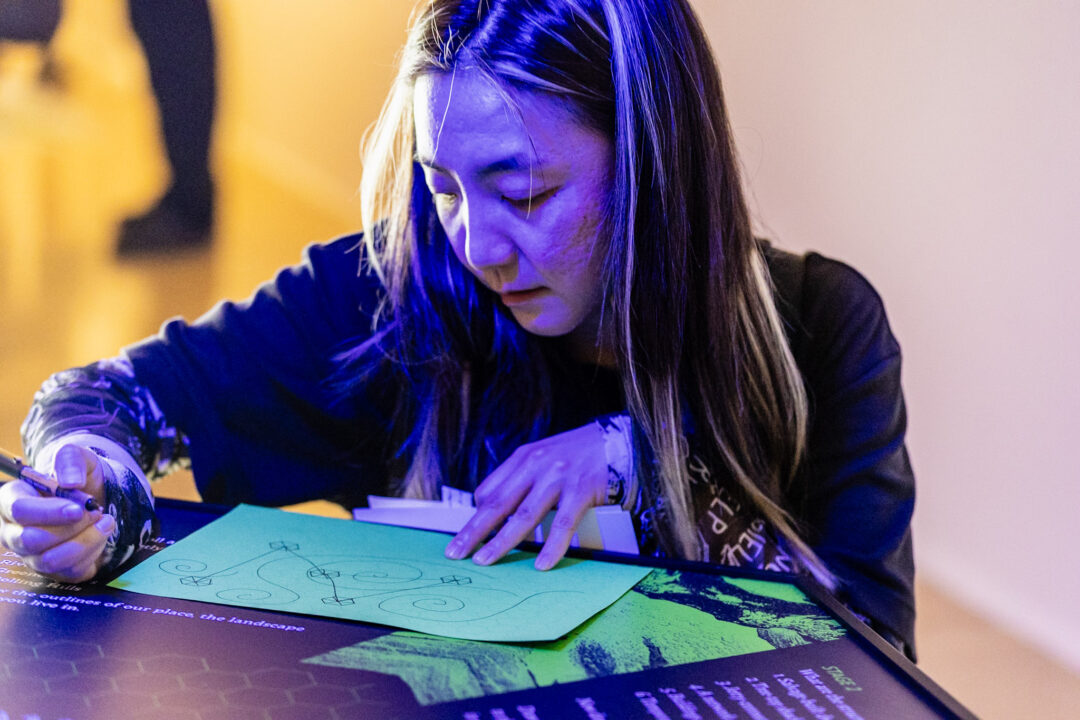
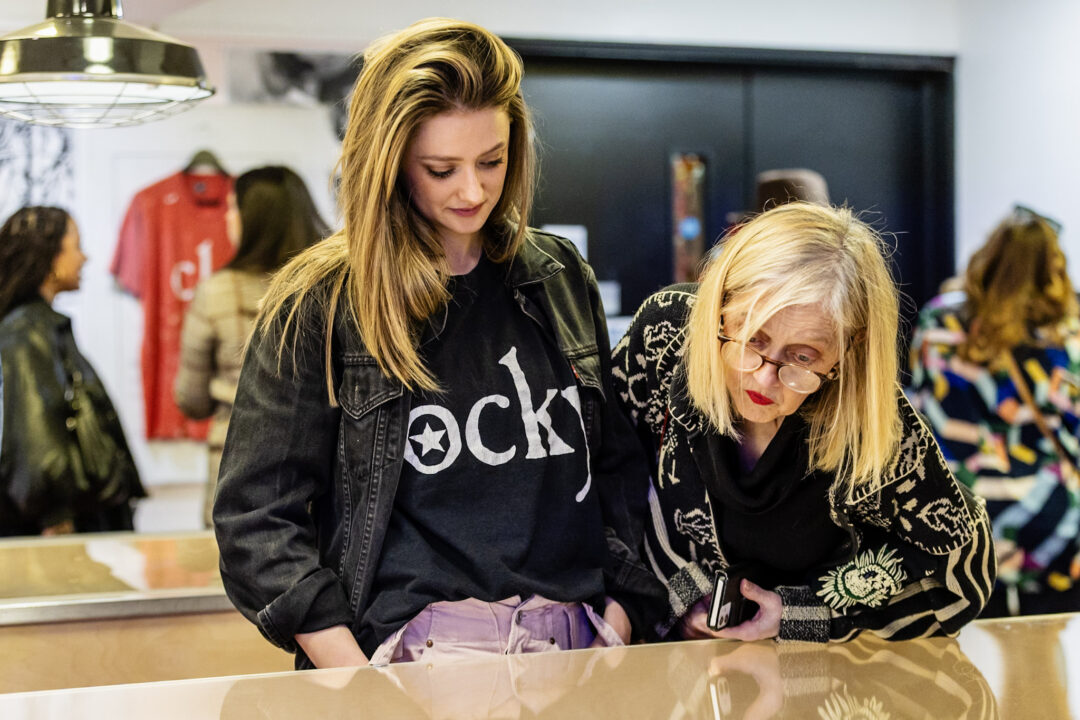
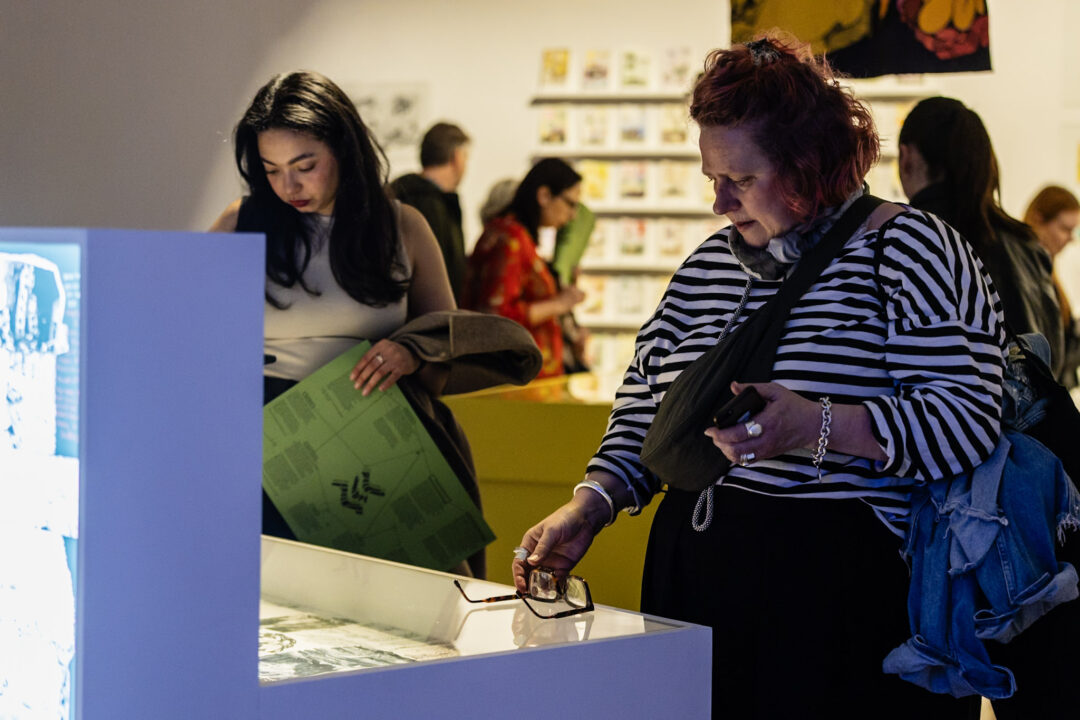
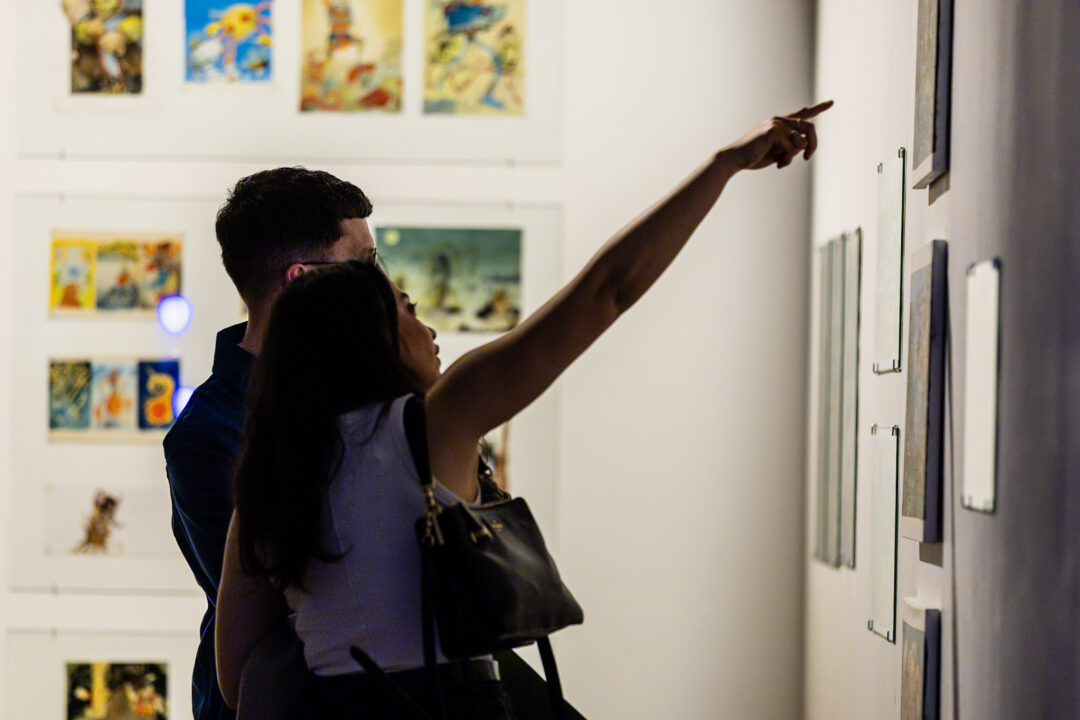
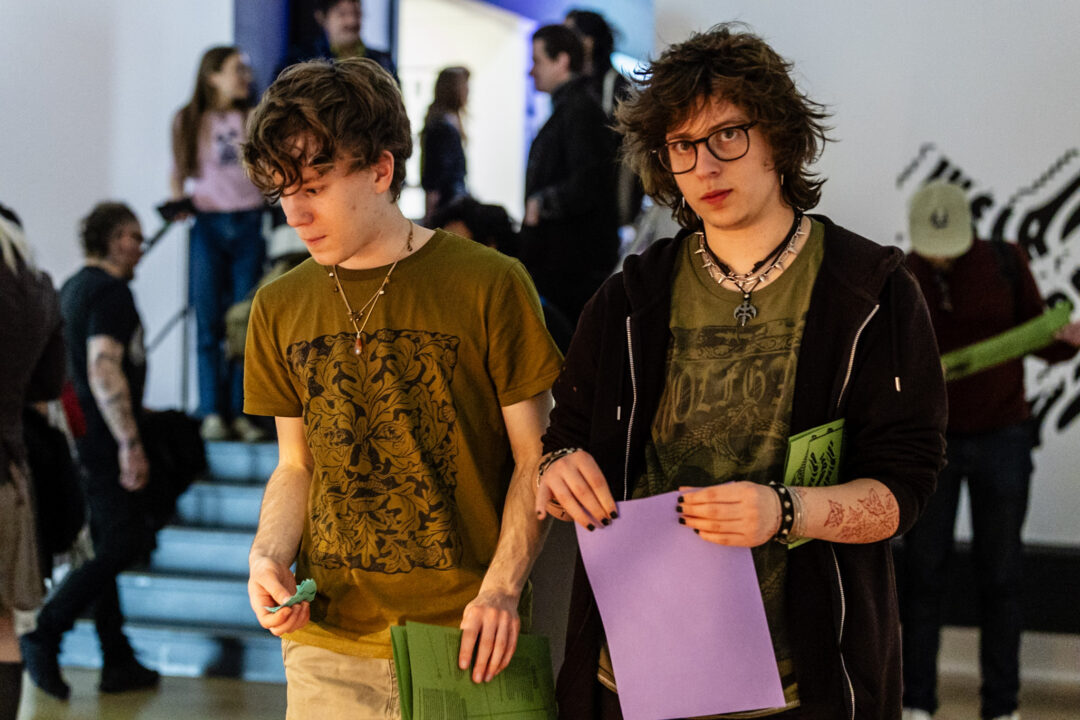
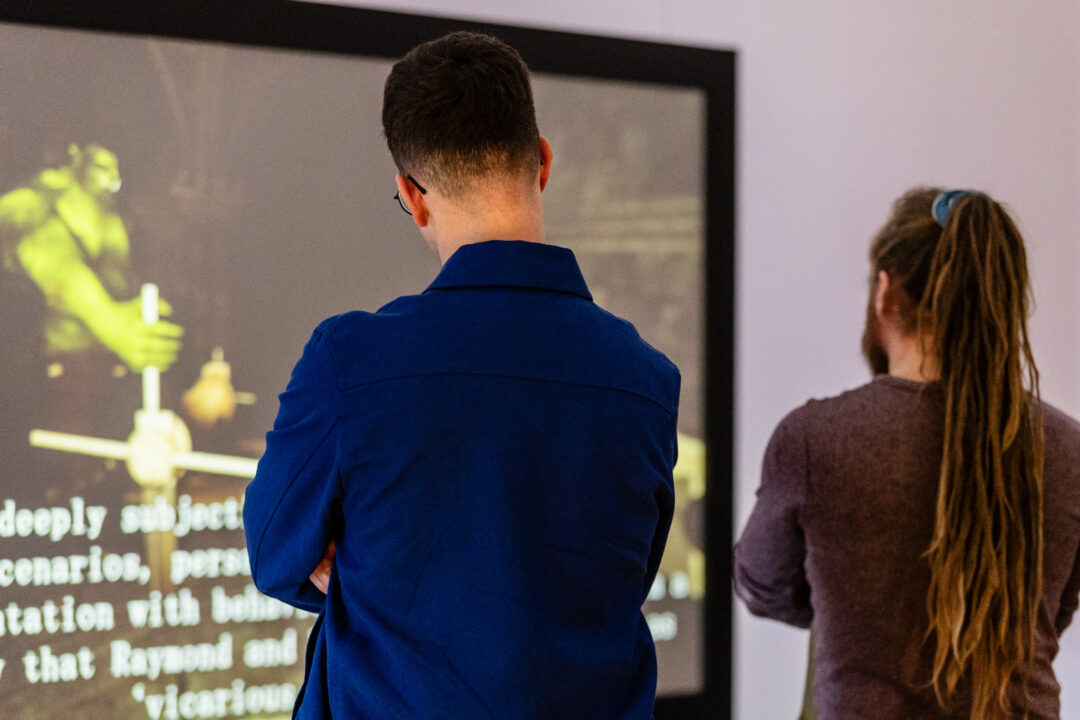
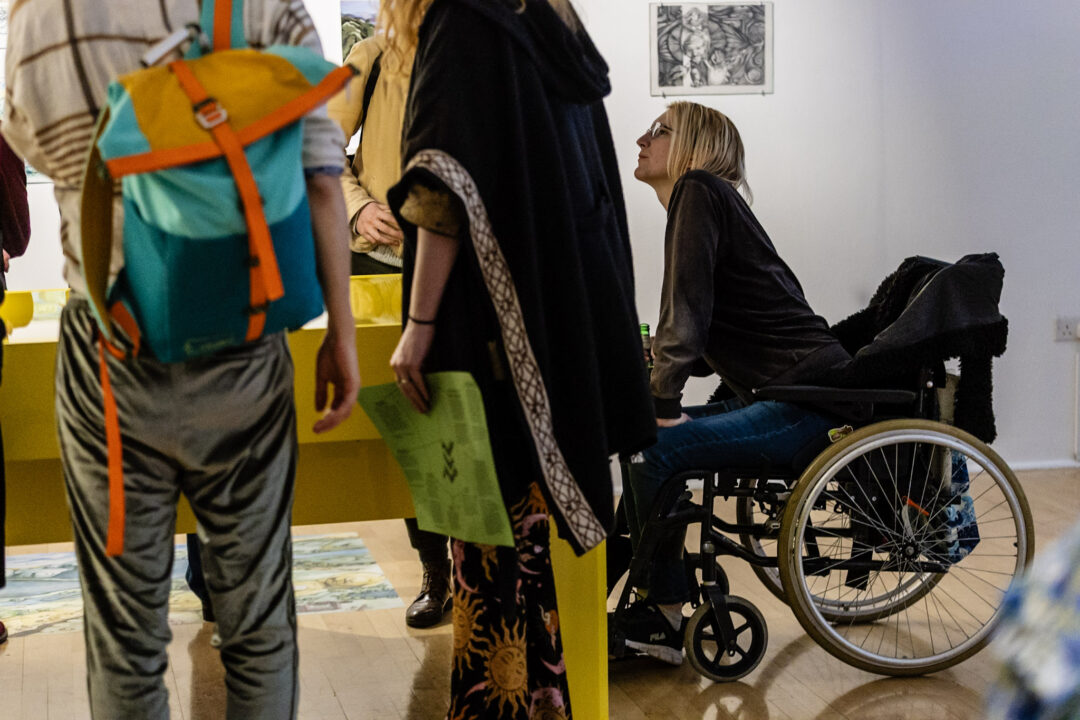
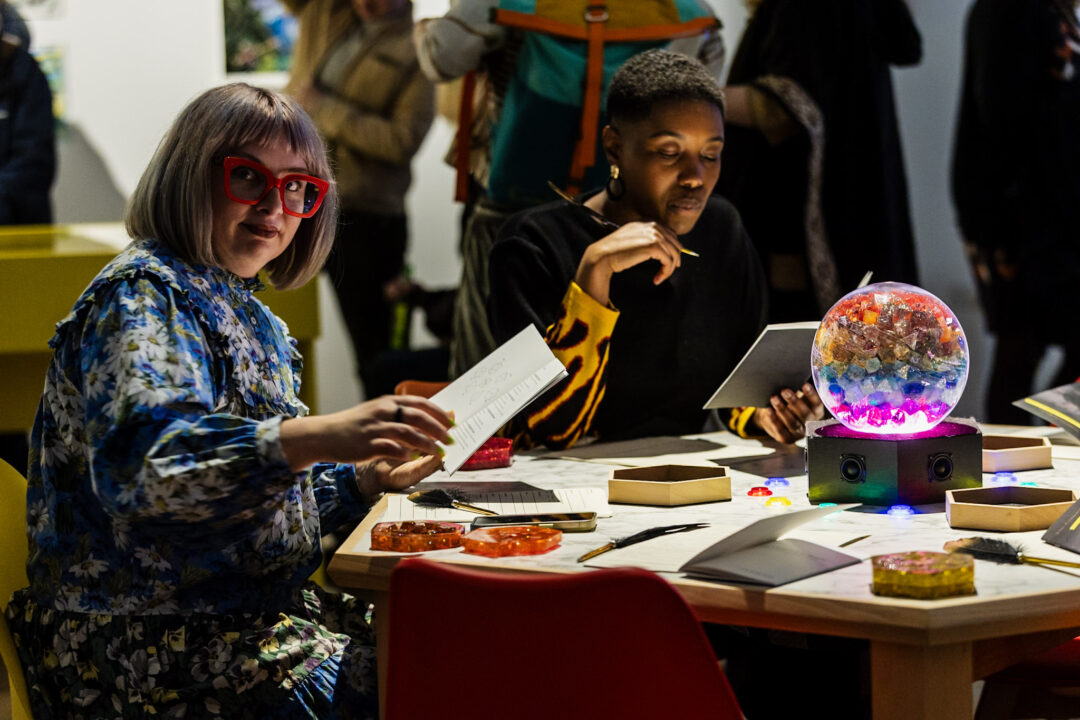
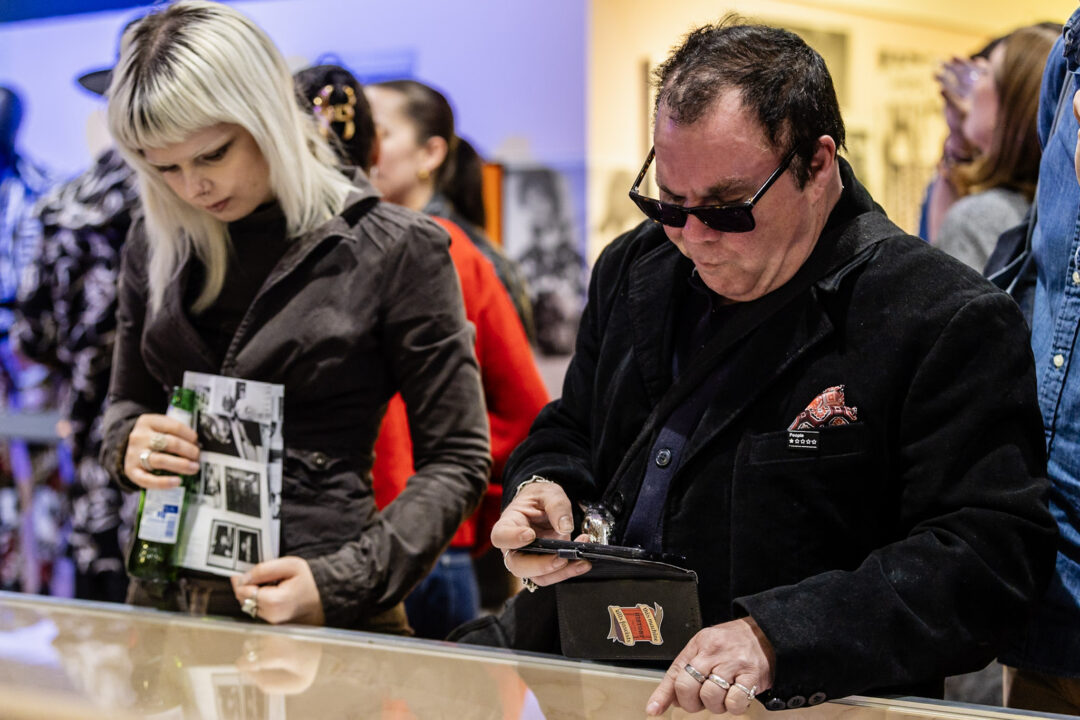
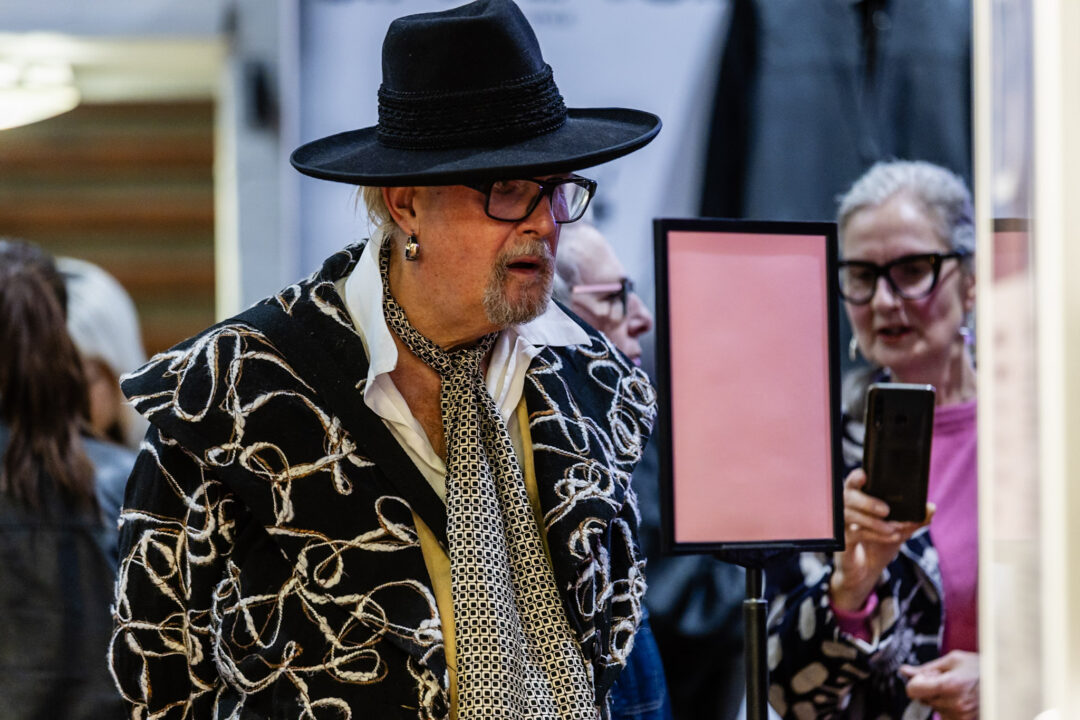
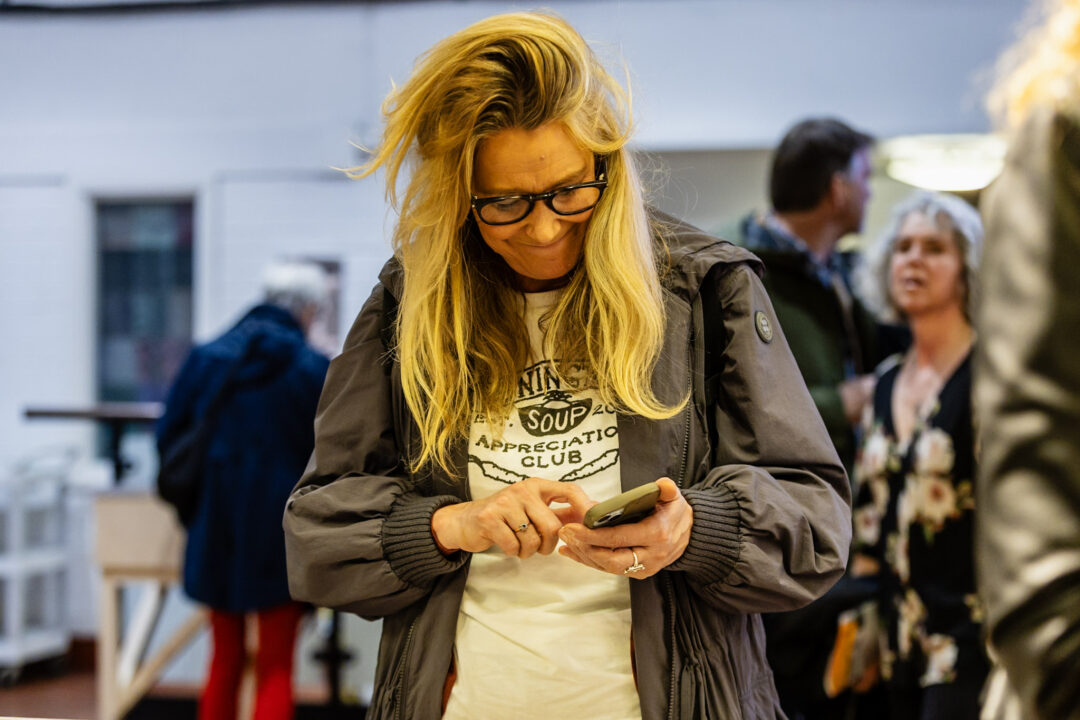
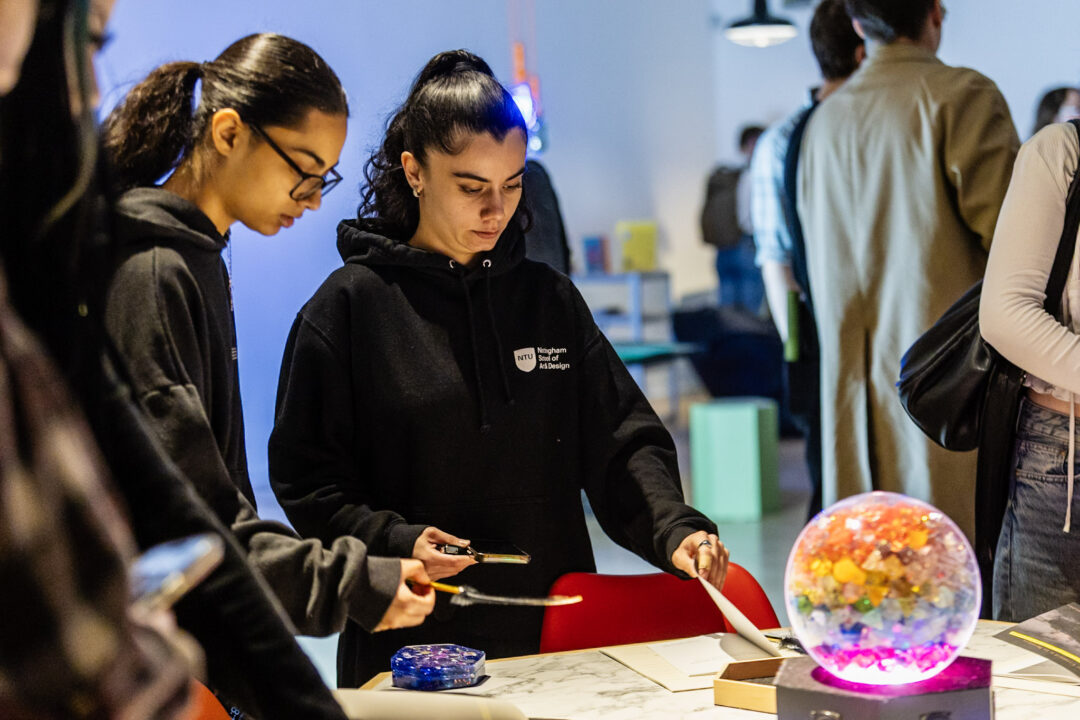
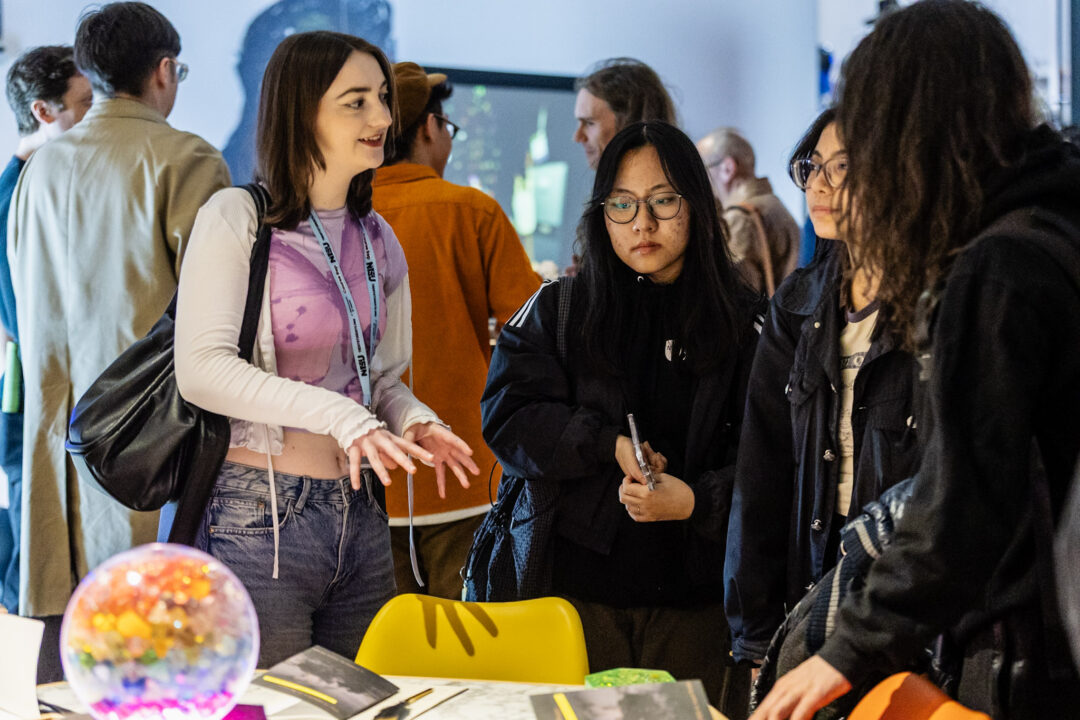
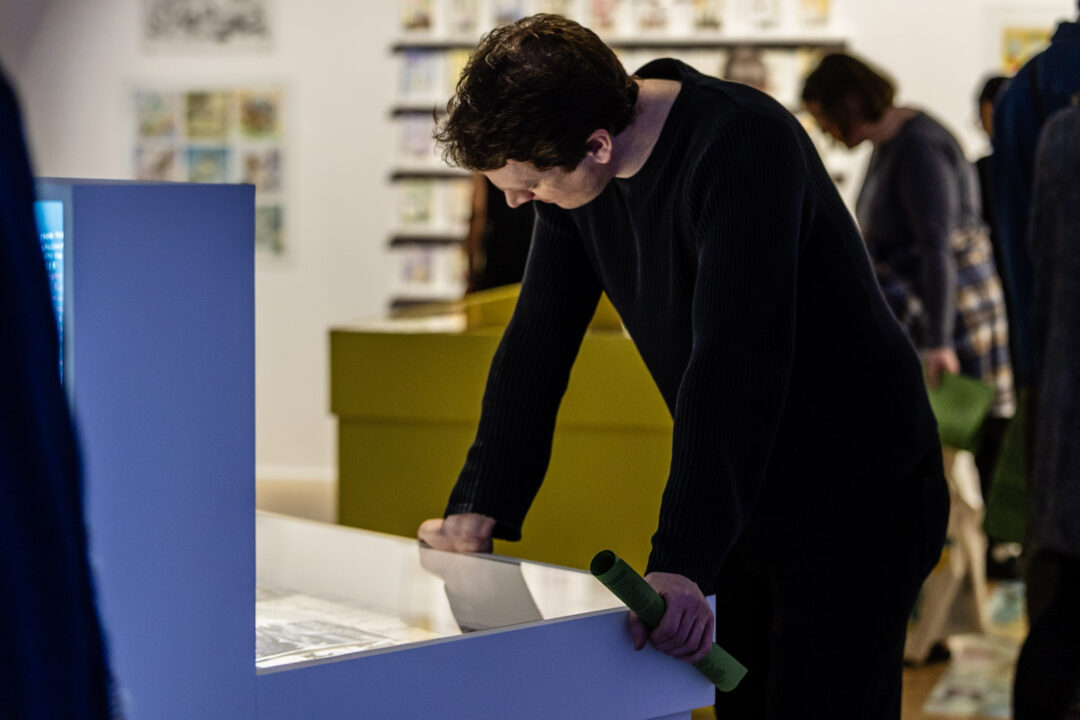
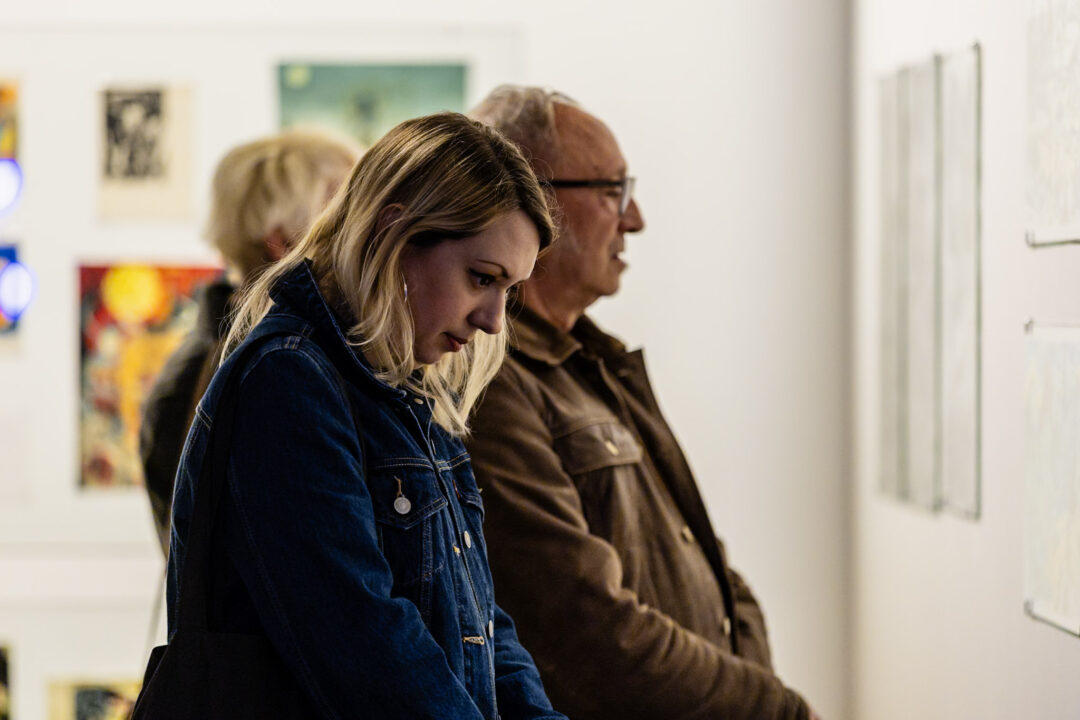
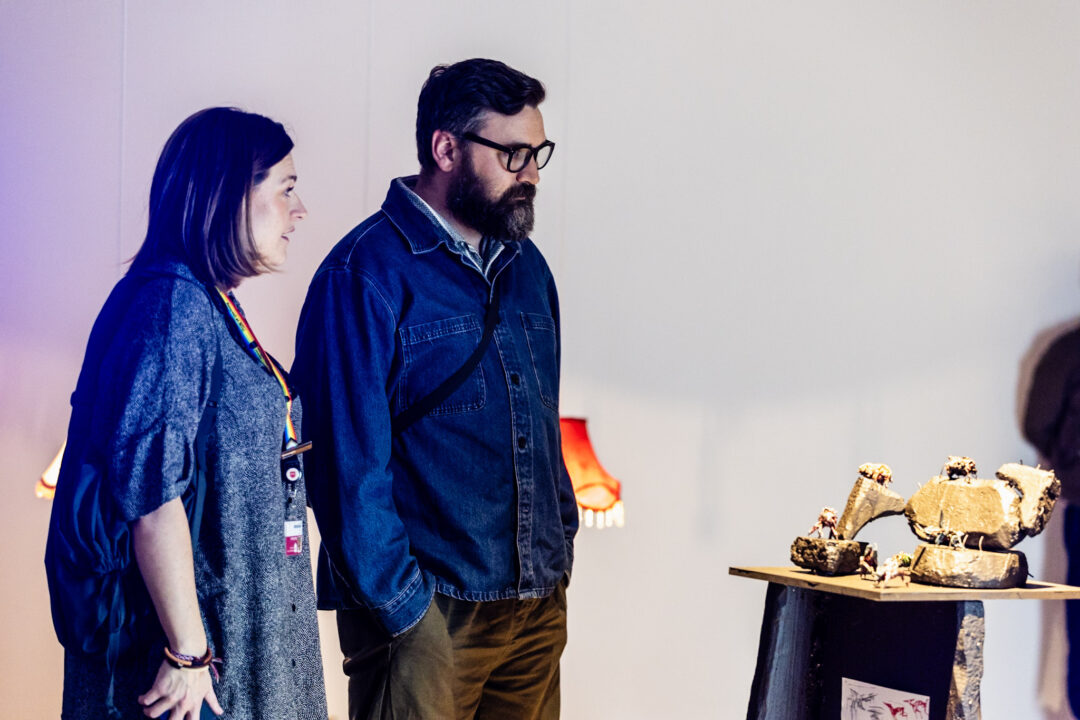
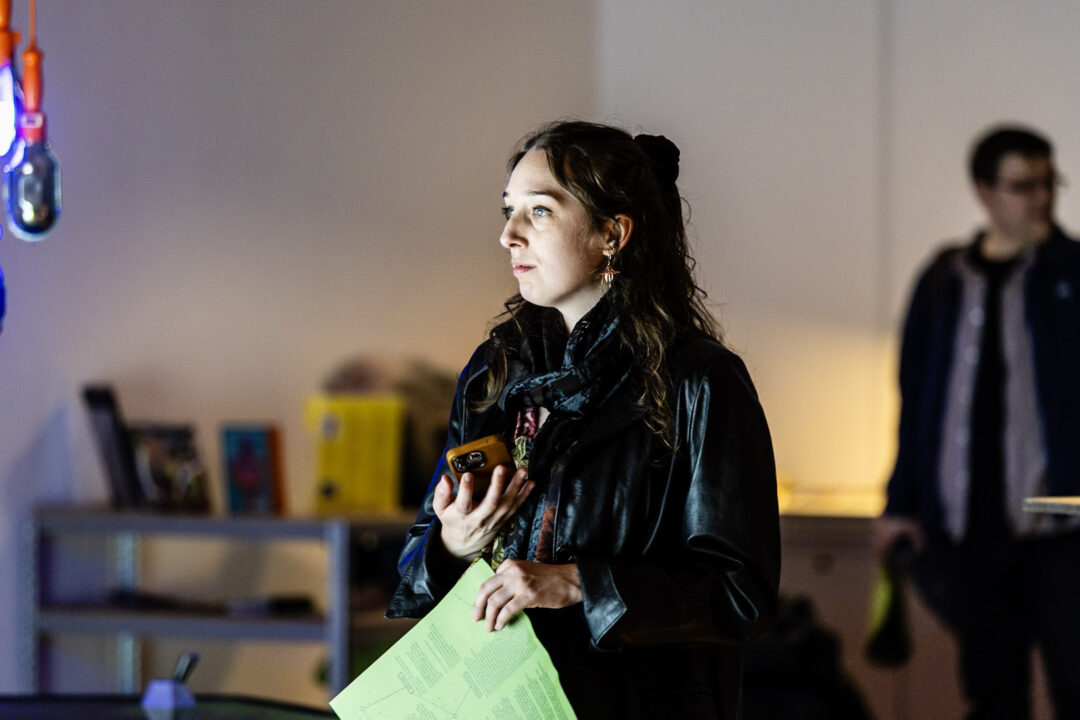
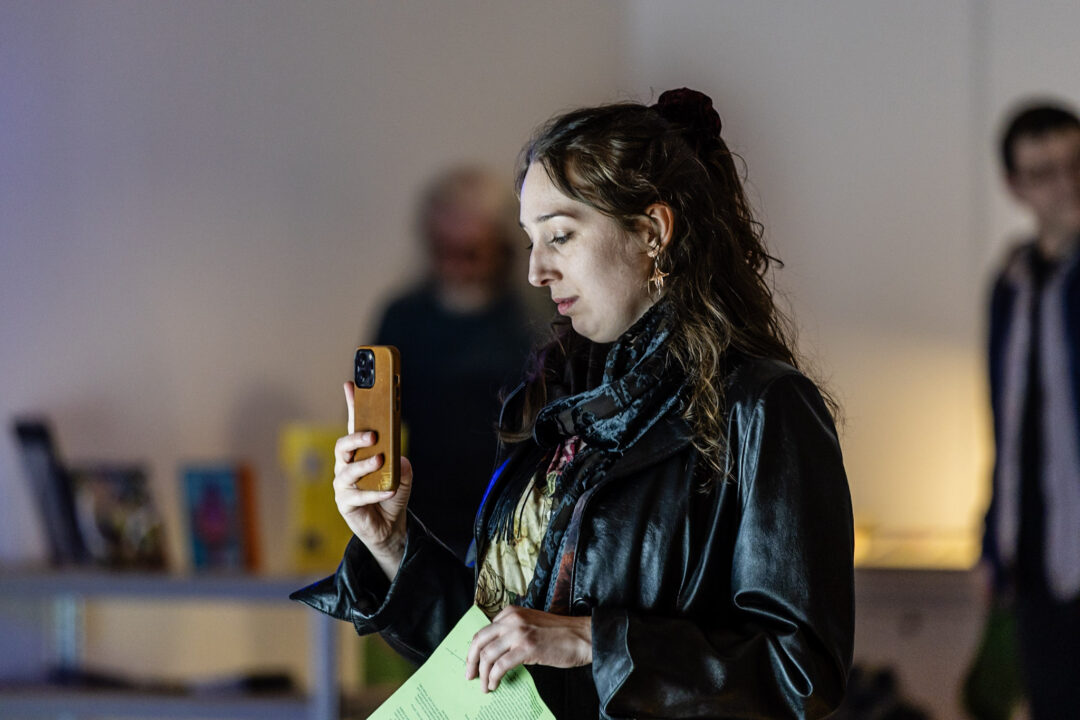
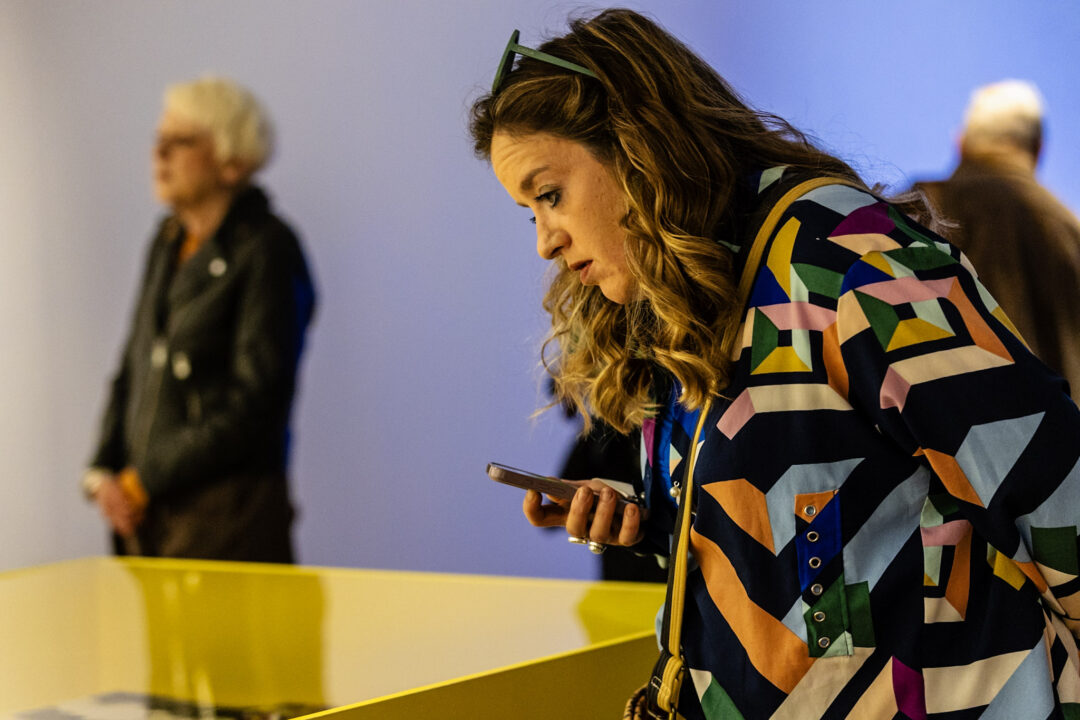
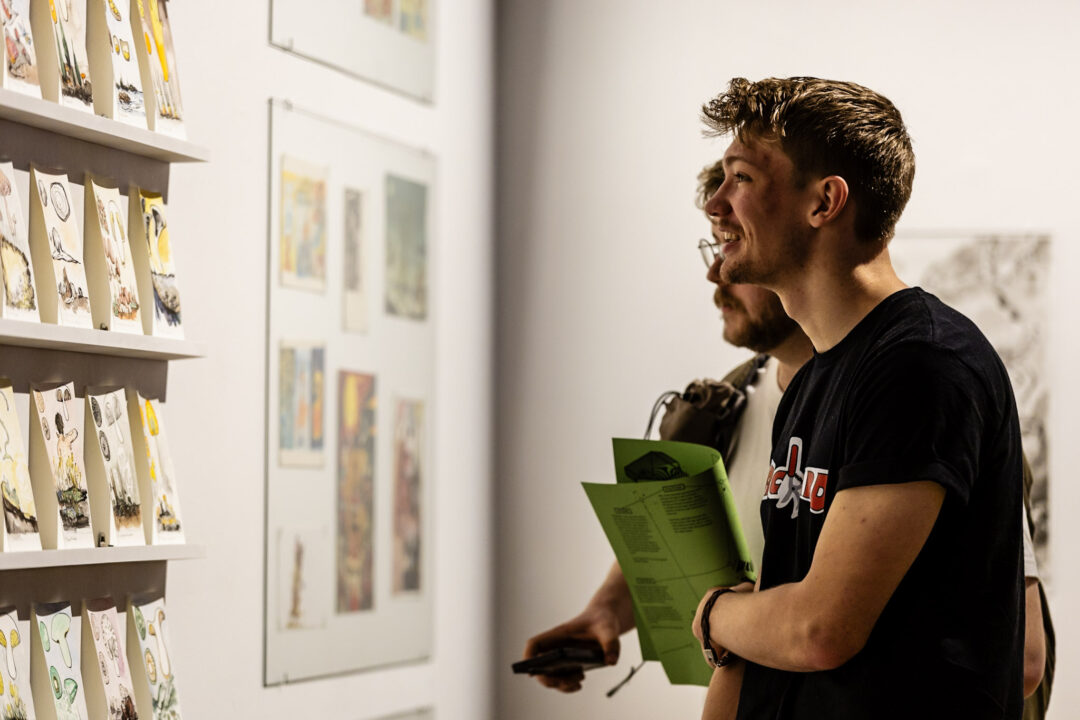
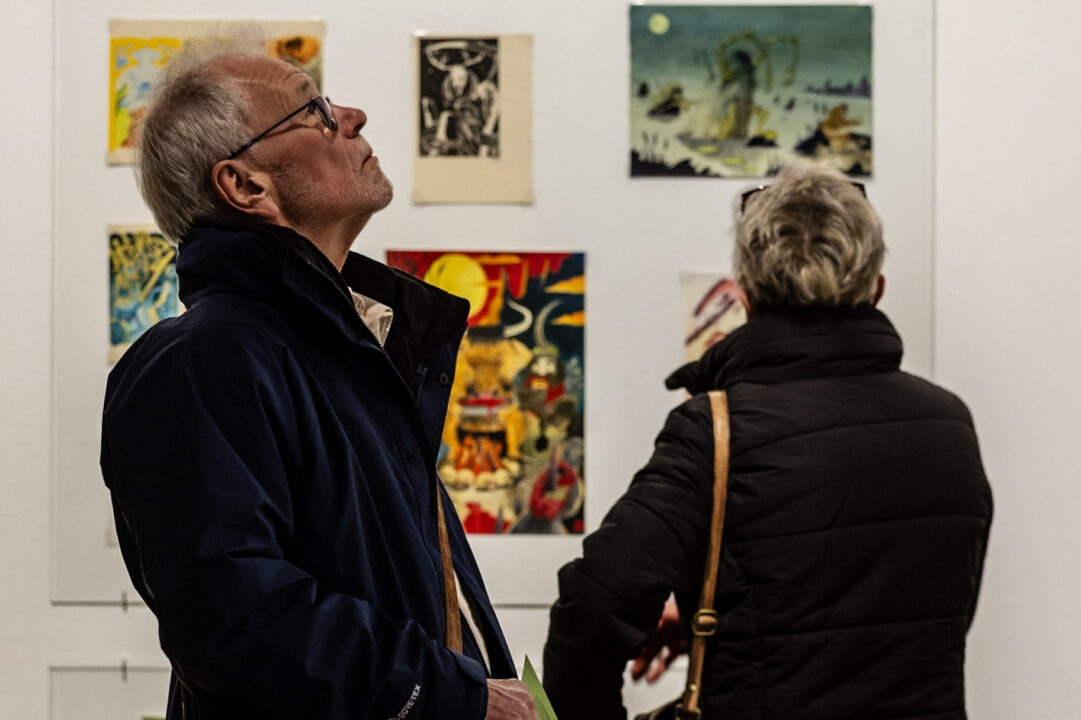
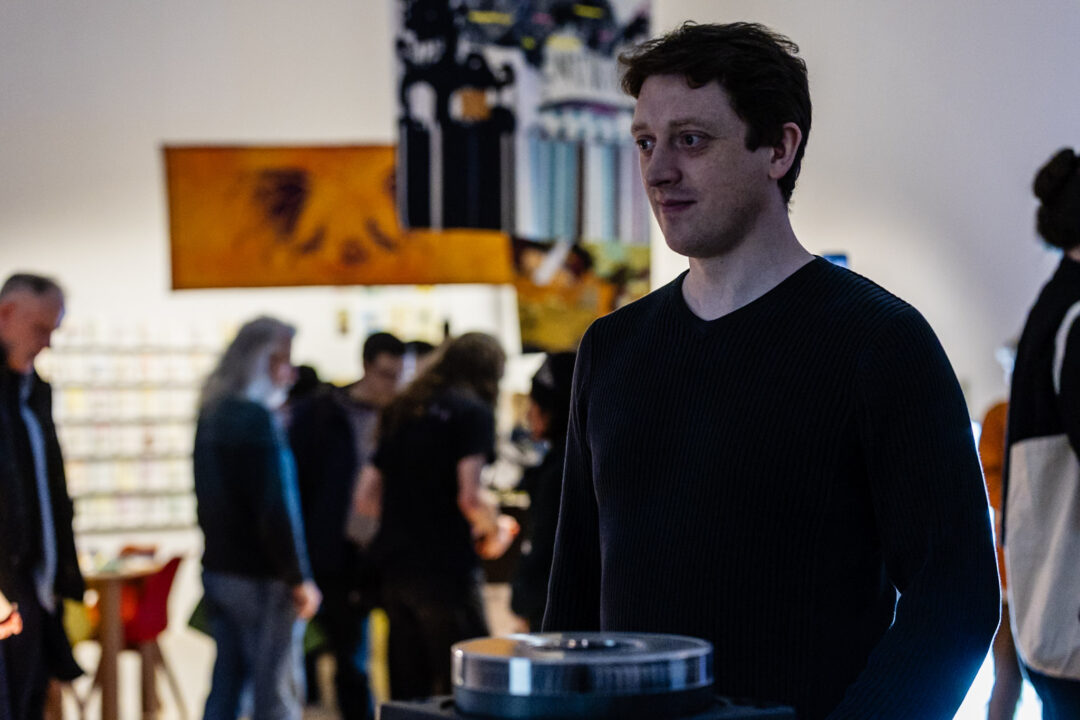
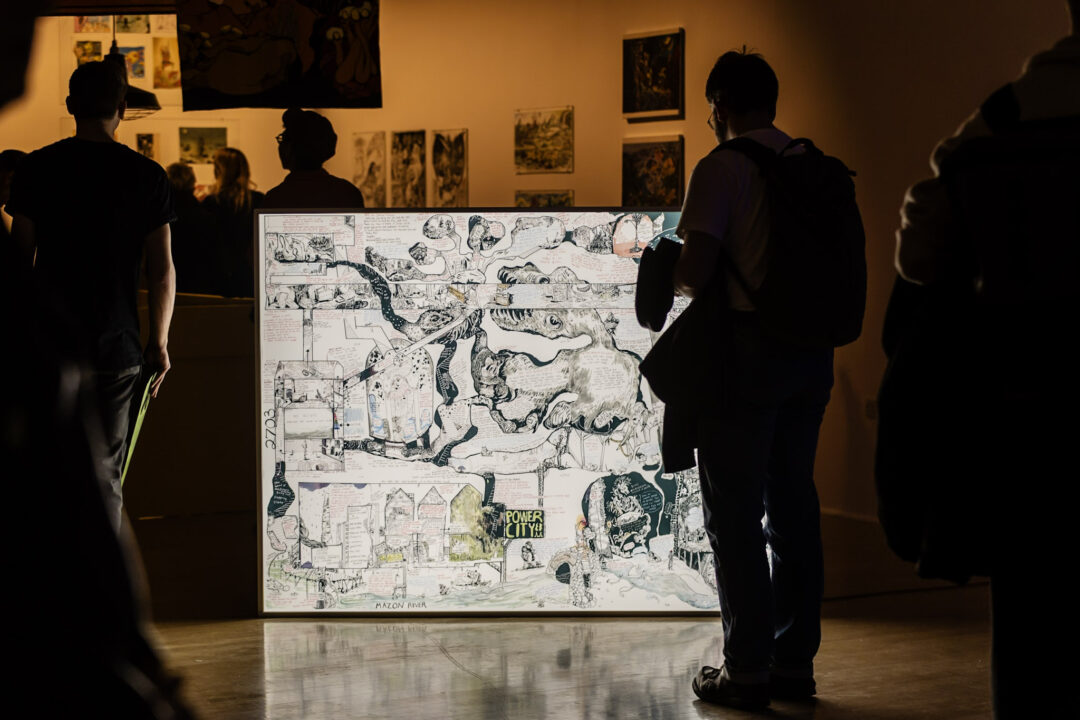
Join us for the launch of a new solo exhibition by Motunrayo Akinola and our Vitrines collaboration with The Aimless Archive.
We’re delighted to be launching two exhibitions in January, and this is your opportunity to come along for a first look around. Enjoy a free welcome drink, delicious food (first come, first served!) and music.
All welcome but reserve your free ticket to avoid disappointment.
Motunrayo Akinola: Knees Kiss Ground
We’re delighted to present Knees Kiss Ground, a solo exhibition by artist Motunrayo Akinola, which explores faith and belonging through everyday objects.
The exhibition was produced during a six-month residency Motunrayo secured at South London Gallery (SLG) as part of their Postgraduate Residency scheme. The scheme provides early-career artists with the rare opportunity to produce a new body of work. Knees Kiss Ground was first exhibited at SLG in 2024 and tours to Bonington Gallery in 2025.
Vitrines #26: The Aimless Archive
Hull based The Aimless Archive delivers the 26th instalment of our Vitrines programme.
The Aimless Archive works across text – conversation – performance – collecting. It questions what we keep and what we get rid of by investigating the processes used to build archives. This approach attempts to be as open and collaborative as it can be. Work often takes the form of a book – a box – a by-product.






























On the occasion of the Design & Digital Arts (D&DA) building launch in November 2024, Bonington Gallery partnered with Nottingham School of Art & Design to develop and present two specially commissioned art installations by design practice Foxall Studio and artist Matt Woodham – both working at the forefront of their respective fields and industries, and both past exhibitors at Bonington Gallery.
Whilst distinct in approach, each commission considered the technological potential within the D&DA building; the generosity it awards to different forms of creative practice; and the dynamic collaborative ethos that drives the student and staff community. This community was central to the realisation of both commissions, actively involved in the production of digital material that was visible across the building and in learning from professional practitioners, recognising the endless possibilities of collaboration and engaging with new equipment & methodologies.




Taking the approach of a ‘hack-day’, Foxall Studio ran three consecutive 1-day workshops in October 2025 with 40+ undergraduate students from 9 courses in the department. Working in small groups and supported by a technical team, students channelled their individual and collective practices through a variety of technologies to rapidly produce a diverse range of digital artwork and creative content. Foxall Studio then operated as magazine editors, utilising and framing this content to produce an expansive ‘digital zine’ that will be seen displayed on screens throughout the building.












Also inspired by the dynamic encounters between people and the spaces in D&DA, and working directly with staff and students from our new MSc in Creative Technologies, Matthew Woodham’s project in room 103 creates a simulated world of interacting organisms with unexpected possibilities. Woodham has created an interactive and immersive real-time installation to generate ‘novel dynamics’, by allowing visitors to alter parameters of a reaction-diffusion system in a specially created computer programme. The audience collaboratively constructs the projections in the space, adapting the experience for the viewer. Through doing this, visitors can consider the relationship between individuals, wider communities and the space they inhabit.




















Two public tours of the commissions were be led by Bonington Gallery Director Tom Godfrey on November 12th & 14th.

Following an online screening and Q&A with artist Subash Thebe Limbu in 2022, we are delighted to present an in-person screening of Ningwasum (2021) and Ladhamba Tayem; Future Continuous (2023), followed by a live Q&A.
The screening (55 mins) will be followed by a discussion and Q&A led by Nicole Thiara where Subash will discuss how his work draws on and develops Indigenous Futurism as well as Adivasi Futurism.
Ningwasum (2021) is a Yakthung science fiction documentary film/video-work narrated by Miksam, a time traveller from a future Indigenous Nation. The film follows two time travellers, Miksam and Mingsoma, played by Subin Limbu and Shanta Nepali respectively, in the Himalayas weaving indigenous folk stories, culture, climate change and science fiction. The film explores notions of time, space and memory, and how realities and the sense of now could be different for different communities. Drawing from Adivasi Futurism and inspired by Afrofuturism and Indigenous Futurism, Ningwasum imagines a future from an Indigenous perspective where they have agency, technology, sovereignty and also their indigenous knowledge, culture, ethics and storytelling still intact.
The plot of Ladhamba Tayem; Future Continuous (2023) depicts a conversation between two indigenous figures from different historical timelines, the first a real 18th century Yakthung warrior called Kangsore fighting the colonial army, and the other an astronaut and time traveler from the distant future. They discuss the space-time continuum from their perspectives, and in doing so, ask the viewers — who exist between the past and future — to investigate their own relationship to the passage of time. The time traveller indicates what the future might look like for us or possibilities we want to strive for, while the warrior reminds us of the fight against colonialism and struggles we shall overcome.
In the future, the Indigenous nationalities will have created a technique called thakthakma – which literally means to ‘weave handloom’, a term inspired by our ancestors’ weaving practice – a technique of entering different timelines or in other words weaving time. So, Subash thinks of his works as weaving stories that are not linear but intricately interwoven. And along the same vein, this work plays with the idea of time as not something rigid but ductile or weavable, which in turn paves the way for questions like how we might want to weave the future.
This event is part of the third series of CADALFEST and organised in collaboration with Formations and the Bonington Gallery. CADALFEST (Celebrating Adivasi and Dalit Arts and Literature Festival) is an international festival series dedicated to the writing and performance arts by writers whose work creatively resists caste discrimination and social exclusion in India: Dalit Adivasi Text.
Happening in Nottingham during the time of this event, we recommend visiting the exhibition Kolam (கோலம்) that has been curated by Raghavi Chinnadurai at Primary, Nottingham. This exhibition explores themes connected to our event, and also features Osheen Siva who exhibited at Bonington Gallery in Spring 2024.
Image: Subash Thebe Limbu, NINGWASUM 2021, video still. Courtesy of the artist.
Subash Thebe Limbu (he/him) is a Yakthung (Limbu) artist from Yakthung Nation (Limbuwan) from what we currently know as Eastern Nepal. He works with sound, film, music, performance, painting and podcast. His Yakthung name is ᤋᤠᤱᤛᤠᤱ Tangsang (Sky).
Subash has MA in Fine Art from Central Saint Martins (2016), BA in Fine Art from Middlesex University (2011), and Intermediate in Fine Art from Lalit Kala Campus, Kathmandu. His works are inspired by socio-political issues, resistance and science/speculative fiction. Notion of time, climate change, and indigeneity or Adivasi Futurism as he calls it, are recurring themes in his works.
Subash is the co-founding member of Yakthung Cho Sangjumbho (Yakthung Art Society) and Haatemalo Collective. Based in Newa Nation (Kathmandu) and London. Follow Subash on Instagram.
Manish Harijan is a Nepal born artist who lives in Sheffield, UK. He was the recipient of the NAE Open Future Exhibition Prize in 2023, and the resulting exhibition, Untouchable Utopia, is currently showing at New Art Exchange until 11 January 2025.
The son of a shoemaker from the so-called lower caste or Dalit in Nepal, Manish questions the injustices inflicted upon minorities and the lived experiences of vulnerable populations in all societies around the world. His work traverses East and West, casting iconic images from religion to pop culture, smoothly embedding them in one canvas to create bold, beautiful and thought-provoking paintings. Inspired by Nepali art traditions of Thangka and Paubha, Manish also borrows styles from graphic novels, especially manga and popular superhero comics.
Manish’s compositions reference a variety of subjects from social issues of caste discrimination to art history, merging local stories with the global, fairy tales with current news pieces, mythology with facts — questioning both the portrayal and the portrayed. In 2012, for his first solo exhibition at Siddhartha Art Gallery in Kathmandu, Manish brought together these themes challenging the status quo of tradition, hierarchy, religion and beliefs in Nepal. Unfortunately, the gallery was vandalised and Manish was sent death threats and accused of being anti-Hindu for portraying Hindu gods in superhero costumes. The exhibition was shut down and a court cases were filed; UNESCO issued a press release to support the artist’s freedom of expression.
Deeply affected and saddened by the state of affairs, Manish moved to the UK, where he enrolled in a Master of Fine Arts programme at Sheffield Hallam University. While at University, he redoubled his commitment to explore the rights of marginalised people through art, participating in art projects that gave voice to the rights of populations that are vulnerable, stateless and at high-risk. He graduated in 2019 and was awarded the Dianne Willcocks Lifelong Learning award.
Manish is one of the artists whose paintings has been shortlisted and acquisitions for the UK’s Government Art Collection 2020/21. His works have also been exhibited at Welt Museum in Vienna, Museum of Communication in The Hague, Nepal Art Council in Kathmandu, Yorkshire Art Space in Sheffield, India Art Fair in New Delhi, CKU Copenhagen in Denmark, October Gallery in London, ROSL Gallery in London, Bloc Project Sheffield, Artist’s Journey #3 in the UK and Solo show at Yorkshire art space gallery 2022 at Sheffield UK. Besides paintings, Manish also experiments with installations, sculptures and multimedia. He works at his studio in Yorkshire Art Space
Neeraj Bunkar is a PhD Scholar at the Department of Humanities at Nottingham Trent University with a specific interest in Caste, Dalit, Rajasthani folklore, Oral History and Cinema. He is researching Rajasthan-based Hindi cinema from the Dalit standpoint. He published, ‘Spring Thunder: Adivasi Resistance for ‘Jal, Jangal, Jameen’’ (2022) and the book review, ‘Subalternity at the Centre: A Young Diary Demands Radical Change’ (2024) the Economic and Political Weekly. He regularly contributes to platforms such as Forward Press and RoundTable India.
Nicole Thiara (she/her) is co-lead of Nottingham Trent University’s Postcolonial and Global Studies Research Group and Principal Investigator on the AHRC-funded Research Network Series Writing, Analysing, Translating Dalit Literature and its Follow-on Grant On Page and on Stage: Celebrating Dalit and Adivasi Literatures and Performing Arts.
She teaches postcolonial and contemporary literature at Nottingham Trent University. Her area of research is Dalit and diasporic South Asian literature and her current research project is the representation of modernity in Dalit literature.
Mrigakshi Das, from Odisha, India, is a PhD candidate at the School of Arts and Humanities at Nottingham Trent University in the UK. Her research interests include Adivasi and Dalit literature, as well as decolonial and postcolonial studies. Her current research explores Adivasi literature and cinema, focusing on expressions of Adivasi identity and otherness through these mediums.
The CADALFEST series [Celebrating Adivasi and Dalit Arts and Literature Festival] has taken place in various locations in the UK and in India between October 2022 and February 2023, with the opening and final events taking place in Nottingham. These events included poetry, music, drama performances and films, along with Workshops, Masterclasses and public discussions with practitioners of both folk and contemporary performative art forms with the contribution of academic researchers who introduced performances, conducted interviews, contributed to the discussions, and more.
The aim, in the CADALFEST series, is to bring people from different walks of life together, sharing perspectives, enjoying themselves and learning from each other. Creativity and empowering energy channelled through the folk and performing arts productions takes centre stage— the horrors of casteism should not be ignored but the joy of togetherness, limitless creativity and social empowerment strategies should come to the forefront in a much more visible way.
Established in 2020, Formations is an event programme led by NTU’s Postcolonial and Global Studies Research Group in collaboration with Bonington Gallery. The series foregrounds the work of underrepresented writers, academics, artists, intellectuals and activists worldwide who address inequalities of all kinds, often bringing people from different places and working practices together for important conversations.
We’re delighted to invite Hull based The Aimless Archive to deliver the 26th instalment of our Bonington Vitrines programme.
Suggested Starting Points is an exhibition that builds upon a single afternoon The Aimless Archive (TAA) spent in the Bonington Gallery archives.
Each item selected operates as an invitation for the audience to contribute to the exhibition, which can be done via open apertures cut into one of the Vitrines on display. Within this format, TAA aim to question the things that grab attention and what those things can be a catalyst for – reimagining the archive as a place for quick decisions and instinct, and not a place of exhaustion.
This exhibition will expand to include the Bonington Archive Cabinet in the form of Notes Toward Suggested Starting Points, where a collection of papers and notebooks generated by TAA will lay bare the process behind the presentation in the Vitrines.
—
The invitation to TAA to make a project with us follows an extensive (and still ongoing) period of organisation of Bonington Gallery’s own 50+ year archive. By bringing external voices into this work, we hope to analyse, question and potentially disrupt inherited processes and attitudes towards the organisation of historical materials. We hope to explore methods for how archives can be activated in ways that better match their often more subjective origins.






























The Aimless Archive works across text – conversation – performance – collecting. It questions what we keep and what we get rid of by generating starting points for new and collaborative work, building archives as places for reflection and evaluation, and presenting unfinished and ongoing work. Repeatedly working in the area where artists and audiences meet, outcomes often take the form of (a book – a box – a by-product) or (a workshop – a scanned doc – a re-drafted piece of writing).
The Aimless Archive on Instagram.

Donald Rodney (b.1961, d.1998) studied at Nottingham Trent Polytechnic, now Nottingham Trent University, between 1981 and 1985. Here, Rodney’s practice moved from painting to an experimental multimedia approach, through which he established an artistic language addressing subjects including racial identity, Black masculinity, chronic illness, and Britain’s colonial past.
Sketchbooks were an integral part of Donald Rodney’s practice from 1982 onwards. His sketchbooks contain: preliminary studies for artworks, records of past exhibitions and various writings; glimpses of Rodney’s diverse personal, cultural, social, and political influences. This vitrine exhibition collates archival material to present a snapshot of Rodney’s time as a student in Nottingham, amid his involvement with local, national, and global socio-political discourses. Rodney began using sketchbooks at the age of twenty-two as a student, and he filled forty-eight sketchbooks by the time of his death in 1998 from complications related to sickle cell disease.
Rodney met fellow artist Keith Piper at Nottingham Trent Polytechnic, and together they moved in with electronics student Gary Stewart. At their address — 3 Lindsey Walk, Hyson Green Flats — Rodney, Piper, and Stewart provided a meeting place for artists, writers, makers, and thinkers: fellow students, local community members, and persons from their national networks. The BLK Art Group was also formed by Rodney and fellow students in 1983, using 3 Lindsey Walk as its address. The BLK Art Group was a collective of young Black artists and curators who exhibited primarily in Birmingham and London. This was an important and necessary group, but BLK Art Group has also been retrospectively attached to activities by British artists in the 1980s who were not affiliated with the collective. This attachment has been critiqued as a reduction and conflation of an important reality: that there were many unique, different, and individual Black British artists working across the UK long before The BLK Art Group, throughout the 1980s, and, of course, far beyond and into the present day.
Rodney, and fellow students, also engaged in artistic activity outside of Nottingham Trent Polytechnic, by organising exhibitions, conferences, talks, and events across the midlands and nationally. These included The First National Black Art Convention of 1982, at Wolverhampton Polytechnic, and Pan-Afrikan Connection, which involved a series of exhibitions in Bristol, Nottingham, Coventry, and London between 1982-1983.
For further insight into Donald Rodney’s life and art, please visit Donald Rodney: Visceral Canker at Nottingham Contemporary until 5 January 2025. This exhibition includes all of Donald Rodney’s surviving artworks including painting, drawing, and installation, as well as sculpture and digital media.
This exhibition has been curated by Joshua Lockwood-Moran with the exhibitions team at Nottingham Contemporary.




















Launch event
Join us for the launch of this exhibition and After the End of History: British Working Class Photography 1989 – 2024 on Thursday 26 September 2024, 6 – 8 pm. Book your free ticket now.
Join us for a free guided tour of Bonington Gallery’s latest exhibition with BSL interpretation.
Book your free place and enjoy a tour of Bonington Gallery’s first exhibition of the new season, After The End Of History: British Working Class Photography 1989 – 2024, led by the Gallery’s Director Tom Godfrey.
Along with an introduction to the exhibition, Tom will give an overview of the Gallery’s programme this season.
This event will last up to an hour. Please meet inside Bonington Building in the foyer space outside the Gallery doors at 12.55 pm. Free and open to all, booking required.
After the End of History: British Working Class Photography 1989 – 2024 is a Hayward Gallery Touring exhibition curated by Johny Pitts with Hayward Gallery Touring.
The Online Dalit Film Festival 2024 is a celebration of resistance, resilience, and the power of storytelling. It is a platform to amplify the voices of Dalit filmmakers who are challenging the status quo and redefining Indian cinema. For far too long, the visual narrative of Dalit lives has been dictated by an outsider’s gaze. This gaze has often perpetuated stereotypes, relegated Dalit characters to the margins, and failed to capture the richness and complexity of their experiences. We’ve seen Dalits portrayed as one-dimensional figures – the downtrodden, the villainous, or the comical sidekick. These depictions not only erase the rich diversity within the Dalit community but also reinforce the very caste prejudices the medium should strive to dismantle.
We believe that true representation comes from within. We need more Dalit directors, producers, actors, and storytellers at the helm. They are the ones who can bring authenticity and depth to the portrayal of Dalit lives, showcasing their struggles, triumphs, and the vibrant tapestry of their culture. Through screenings, Q&A sessions, and a panel discussion, the festival seeks to educate and engage audiences on themes of caste, social justice, and the Dalit experience. We hope to foster a dialogue that challenges discriminatory practices and promotes a more inclusive future in Indian cinema.
The festival kicks off on Thursday, July 4th, 2024, with a screening of The Discreet Charm of the Savarnas by Rajesh Rajamani. This film exposes the hypocrisies of the ‘upper caste’ filmmakers.
July 11th, 2024: Champaran Mutton by Ranjan Umakrishn Kumar is a film that underscores the themes of caste politics and discrimination. Yarigu Helonu Bayda by Ajay Tambe is a commentary on Brahmanical society, cultural biases, and the intricate dynamics of love, friendship, betrayal, and personal conflict.
July 18th, 2024: BR Ambedkar: Now And Then (BRANT) is a feature-length documentary film by Jyoti Nisha. Driven by Dr. Ambedkar’s philosophy, the film explores the representation and assertion of Bahujan people in contemporary India.
The festival concludes on Thursday, July 25th, 2024, with a panel discussion on the subject of Dalit or anti-caste themed films in India. We’ll be joined by distinguished scholars Harish S. Wankhede, Amit Kumar, Manju Edachira and Rajesh Rajamani to discuss the scope and limitations of such films, paving the way for a future of inclusive storytelling.
Neeraj Bunkar is a PhD Scholar at the Department of English, Linguistics, and Philosophy at Nottingham Trent University, Nottingham, United Kingdom with a specific interest in Caste, Dalit, Rajasthani folklore, Oral History and Cinema. He is researching Rajasthan-based Hindi cinema from the Dalit standpoint. His write-up in the category of PostScript: ‘Spring Thunder: Adivasi Resistance for ‘Jal, Jangal, Jameen’’ (2022) and the Book review: ‘Subalternity at the Centre: A Young Diary Demands Radical Change’ (2024) published in the Economic and Political Weekly. He regularly contributes to platforms such as Forward Press and RoundTable India.
Bonington Gallery is pleased to present Knees Kiss Ground by London based artist Motunrayo Akinola (b.1992).
Motunrayo explores themes related to faith, migration, belonging, colonialism and postcolonialism using everyday materials, domestic imagery, historical imagery and text. His work manifests predominantly through sculpture, installation, performance, sound and drawing.
As a British-born Nigerian who is comfortable in both spaces, Akinola’s work investigates systems and subtle cultural codings that maintain a sense of othering. He creates environments that question societal positions on contemporary issues by re-contextualising familiar objects and materials – interrupting quick associations and creating points of access into othered perspectives.
Motunrayo’s interest in attitudes towards migration stems from his dual upbringing in London and Lagos, Nigeria. Work created during recent years explores postcolonial power dynamics and the psychology of ownership. By noting subtle gaps in cultural knowledge, his work encourages a new understanding about the possession of space.
Having studied both architecture and art, Motunrayo is interested in the impacts the built environment has on human experience. For this exhibition, Motunrayo will present works including a full-scale replica of a shipping container made from cardboard, a site-specific drawing that documents a private performance in Bonington Gallery, and several works that use light to explore the relationship between light and religious or spiritual rituals, such as the Biblical association of light as a revelatory presence.
This exhibition has been produced in partnership with South London Gallery where Motunrayo spent six months on the Postgraduate Residency programme in 2023/24, culminating in the solo exhibition Knees Kiss Ground. This iteration of the exhibition is an expansion on the works created during that period.


























Motunrayo Akinola is a London-based artist who uses images of the home and everyday materials to explore comfort and belonging. He creates sculptures, installations, sound and drawings. He studied at RA Schools, graduating in 2023. As a British-born Nigerian who has spent time in and now feels comfortable in both countries, Akinola’s work exposes the nuanced differences between the two places.
Bonington Gallery have partnered with South London Gallery to deliver their 13th Postgraduate Residency, an open submission six-month residency that provides an early-career artist with a rare opportunity to produce a new body of work, which is then exhibited at the SLG and in this instance at Bonington Gallery. The residency is open to artists who have completed a BA, and have undertaken a period of self-directed, peer-led or postgraduate study in the year prior to the residency. This can include alternative, peer organised and non-accredited programmes from an institution, collective or art school in the UK as well as an MA, MFA, PGDip, MRes.
The SLG has an international reputation for its contemporary art exhibitions by established, mid-career and younger artists and programme of film and performance events. Its highly regarded, free education programme includes a peer-led young people’s forum; family workshops; artist-led projects and commissions on local housing estates; and a programme for looked after children.
The Postgraduate Residency is supported by The Paul and Louise Cooke Endowment.
Press
Floorr Magazine
Corridor8 review by Jade Foster

This event is now fully booked. Those without a ticket may not be admitted.
Join us for the launch of a new exhibition featuring over 120 works by contemporary working-class artists and photographers.
Curated by photographer, writer and broadcaster Johny Pitts, After the End of History emphasises the perspectives of practitioners who turn their gaze towards both their communities and outwards to the wider world. Find out more.
‘After the End of History: British Working Class Photography 1989 – 2024’ is a Hayward Gallery Touring exhibition curated by Johny Pitts with Hayward Gallery Touring.

































Dr Paul Adey is a HE lecturer of Music Performance and Music Business at Confetti Institute of Technologies.
Performing under the artist name of Cappo, he has practiced hip hop lyricism for over two decades. During this time, he has had the privilege of appearing at many of Europe’s premier live music venues, performing alongside artists such as Public Enemy, Skepta, and The Sleaford Mods.
Throughout his career, he has released music on various record labels including Tru-Thoughts and Ninja Tune, and featured live on BBC Radio One (John Peel), BBC Radio 1 Xtra, and BBC Radio 6 numerous times.
Paul’s interdisciplinary research focuses on popular culture, literary devices and musical concepts such as intertextuality and allusion, and the semianalysis of song lyrics. The interdisciplinary nature of Paul’s research links his work to Music, English, Creative Writing, and media studies.
Instagram: @kafka_poe_murakami
X: @CAPPO_GENGHIS
Linktr.ee: @_Cappo_
Claude Money is a record producer and PhD researcher from Nottingham via Singapore and Spain.
Based at Sirkus Studios, he’s been known to work on projects of all genres, but is consistently influenced by the stylings and history of Library Music, Soul, Jazz and Hip-Hop, as well as the traditional folk music of his broad and eclectic cultural background.
Outside of the record industry, he produces music for the screen. He has created bespoke pieces for the BFI and Netflix as well as BBC’s Inside Out, London Fashion Week and the Sailing Grand Prix.
Since 2016, He’s produced a wide variety of tracks for artists including Pete Beardsworth, Emily Makis, Wariko, President T, Window Kid and Snowy. His breakout single was his remix of Misti Blu Two by Amillionsons featuring siblings Taka Boom, Chaka Khan and Mark Stevens, available now on vinyl via Amillionrecords.
Claude’s previous career as a journalist eventually led him to the world of live music. As a promoter he’s worked with headliners such as Hypnotic Brass Ensemble, Talib Kweli, Pharoahe Monch, Saul Williams, KRS One, Children of Zeus, The Pharcyde and Ghostface Killah.
His passion for the culture has now led him full circle. In October of 2024 Claude will begin a new role at the Nottingham Trent University Doctoral School as a researcher where he will be recording and transcribing the oral histories of Nottingham’s hidden Hip-Hop history, a previously unexplored and under-researched area of UK cultural history.
www.sirkus.co.uk
www.instagram.com/claudemoneyofficial
www.soundcloud.com/claudemoneyofficial